INTRODUCTION
WAITING IN LINE FOR THE NEW IPHONE
The (holy) Apple store
Cults and iPhones
GOOD MORNING SIRIDigital FOMO
Temptation
Phantom Ring
LOVE LETTERS LEFT ON READThe relationship
Dopamin loop
NO, YOU HANG UPDigital loneliness
The iconic 2002 break up
BROKEN HEART EMOJIBIBLIOGRAPHY
When the doorbell isn't ringing we don't go up to the door and open it, but why do we keep unlocking our phone when there is no new message? During the day we keep repeating this action. What are we exactly trying to fulfill by repeating this action on a daily basis?
The past two years my smartphone and I have gone through countless amounts of text and phone calls, but now the time has come to say goodbye. Seemingly, one of the closest relationships that we can have is not with other humans but with our smartphones. People all of a sudden depend so much on a little piece of technology to the extent that they are willing to purchase a new device with relatively few improvements. We all crave the perfect relationship, one that will last us forever, but we should ask ourselves the following: Is that realistic? Now with the countless dating apps around us that offer us new people to meet, every single day we tend to think whether there is someone better out there to be in a relationship with. Is it true that the grass is always greener on the other side and does this also apply to our smartphones? And lastly, how perfect is this relationship with our smartphone in comparison to the relationships we have with other people?
In my research, I am looking into the elements that make us have a toxic relationship with our phones, and with the help of a timeline created around the two-year relationship you would have with a new phone. My research starts with explaining one specific type of user. I will furthermore take you to a place where phones are worshipped, a place where one’s candles were lit on iPad's, so to speak. And finally, I’ll explain how one keynote presentation changed everything in the world of smartphones.
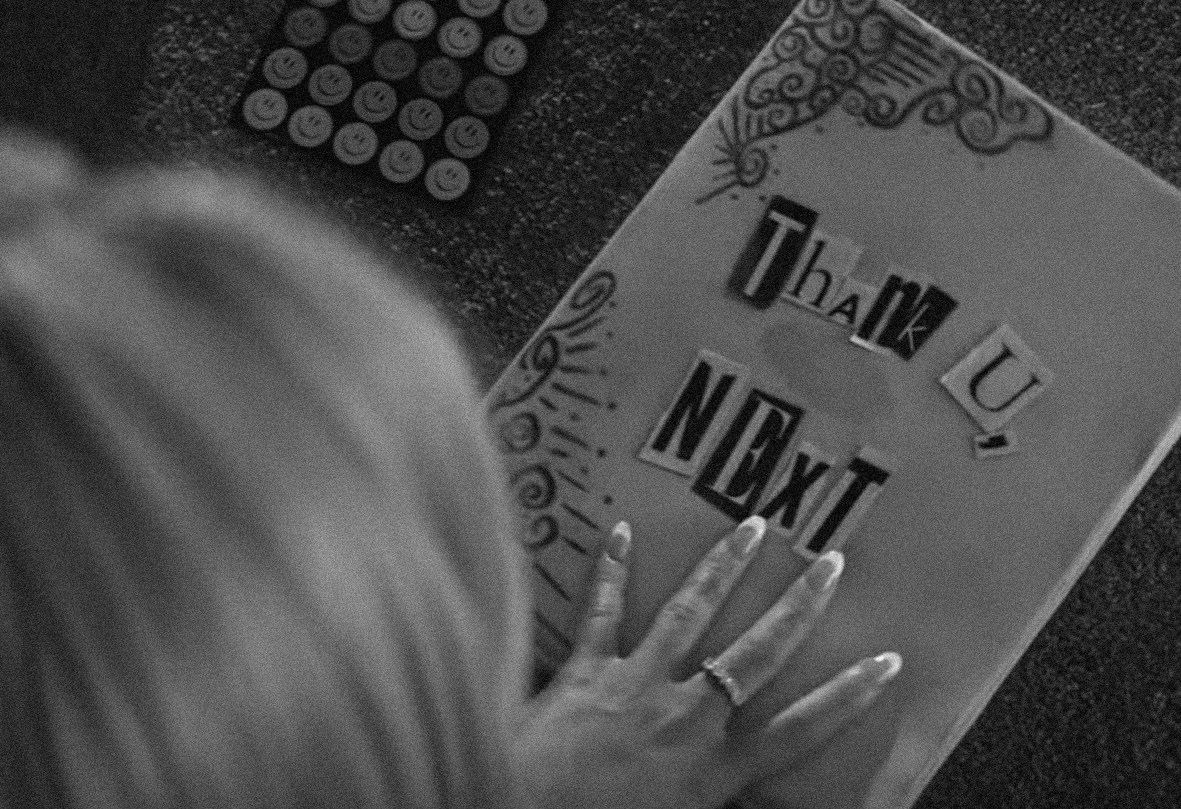
While scrolling through different apps on my iPhone I couldn't help but think how phones used to be. It made me curious to see my first cell phone. The first phone I ever owned was a Nokia 5200. In comparison to the phone I have today I can hardly do anything with it. It was meant for emergencies, so, unlike the phone I currently have, it was not very attached to me. I remember forgetting it a lot or just not thinking about it for large parts of the day. Additionally, texting used to take so much time because those types of phones did not have a full QWERTY keyboard layout. If you wanted to use the letter "s" you had to type the number seven, four times. Imagine having to type the word "senseless," it would take ages. But now, everything (functionality wise) is different. Your phone gives you endless possibilities.
One could argue that the relationship I have with my phone is too close. This relationship can be interpreted figuratively, as well as literally. Meaning, I am genuinely attached to my phone as a communication device and the miscellaneous apps that complement its main function. And, at the same time, I am, more often than not, in close proximity to my phone. In other words, not only can my relationship with my phone be emotionally defined, but there seems to be a spatial relationship as well. My iPhone has become a best friend, a partner, and a companion when no one else was there. How have we, as human beings, become so close to an inanimate object? Within a couple of years we will get to the point that some people won’t be able to survive without their phone.
I, Fabiola, take you, iPhone 12, to be my lawfully wedded partner, to have and to hold, from this day forward, for better or for worse; for richer or for poorer; in sickness and in health, until death do us part... or till the iPhone 13 comes out.
Relationships don't have expiring dates, or do they? In an episode from Black Mirror Hang the DJ,”
[2]
they show us how a world would look like if relationships had an expiring date, it captures how modern dating works, because today we trust algorithms to find love. The relationship with our iPhone does have an expiration date, it's a two year relationship and then we are ready for the next one.
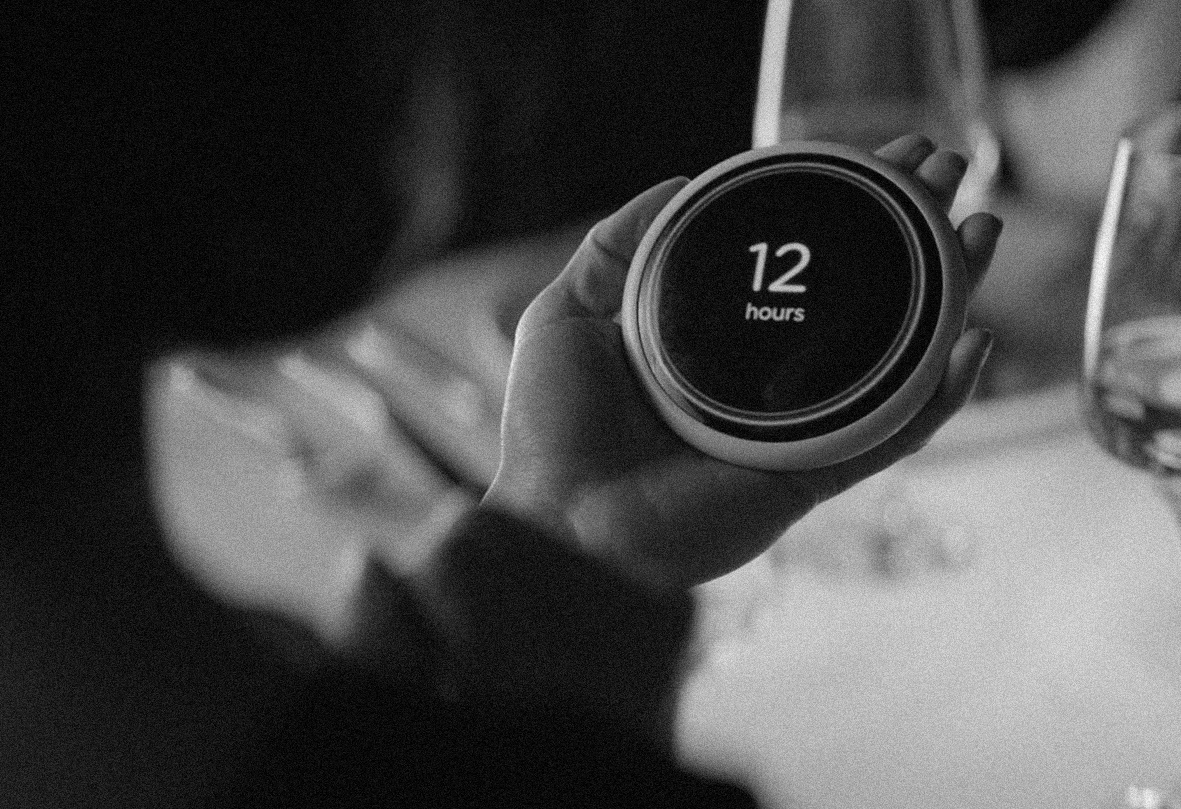
The (holy) Apple store
Changing your phone every two years has been relatively more common for people who own iPhones. In 2010 I got my first iPhone, it was the iPhone 4. Now in the year 2020, a decade after getting my first iPhone, I will, most likely, be getting the iPhone 12. I would even go to the extent of calling myself an Apple “fangirl”, seeing that since I started buying Apple products I never wanted anything else. I have always felt this commitment to Apple from the beginning. Admittedly, when I get a new iPhone the one thing that excites me every single time, is removing the plastic protective thin sheet of plastic covering the iPhone.
It's that time of the year again; you are going to the Apple store to get a new phone. At arrival you notice something many people have noticed before you: the somewhat unusual appearance of the Apple stores. Many would describe the stores looking like churches, because the architectural elements mirror that of religious spaces. And, to be honest, this religious aspect is not only noticeable from the outside.
Professor of media, culture, and communication at the New York University, Erica Robles-Anderson, was asked by Atlas Obscura, a company that tells you about different destinations around the world, to see if Apple stores are really a sacred space.
[3]
Apple has created different rituals throughout the years without you even noticing. When you enter the Apple store, it's a whole different experience than any other store. Already at the entrance, Apple greets you with big heavy doors. Robles-Anderson talks about these doors in her article in which she argues that there is no reason for them to exist. Apple stores want you to (unconsciously) know that you are entering an important place. By using massive doors, they try to communicate the importance of Apple stores. These doors give you more time to slowly discover the inside of the Apple store without technically entering it. Additionally, Robles-Anderson says that these doors could be compared to church doors.


Upon entering the store you are already forced to be in a group setting, everything is open, there is no little corner for you to be by yourself. The Apple Store takes a personal experience with technology and forces it to be shared with others in public. It helps create habits and rituals to the Apple experience. These stores were never made with the sole purpose for people who simply want to buy new, (to a certain extent) innovative products. But likewise —again, similar to religions—for people that affiliate themselves with the brand, to “worship” its technological magnificence.
In addition, Apple provides a powerful experience to its customers, even more so on iPhone release days. Faithful (once again, this religious rhetoric) customers will line up in front of the store and spend several days and nights to get their hands on the newly anticipated smartphone. Every year I watch these videos of people literally camping outside Apple stores, in order to get the new iPhone on the day that it releases. But why do people who love Apple go through the seeming horror of lining up for multiple days or possibly weeks?
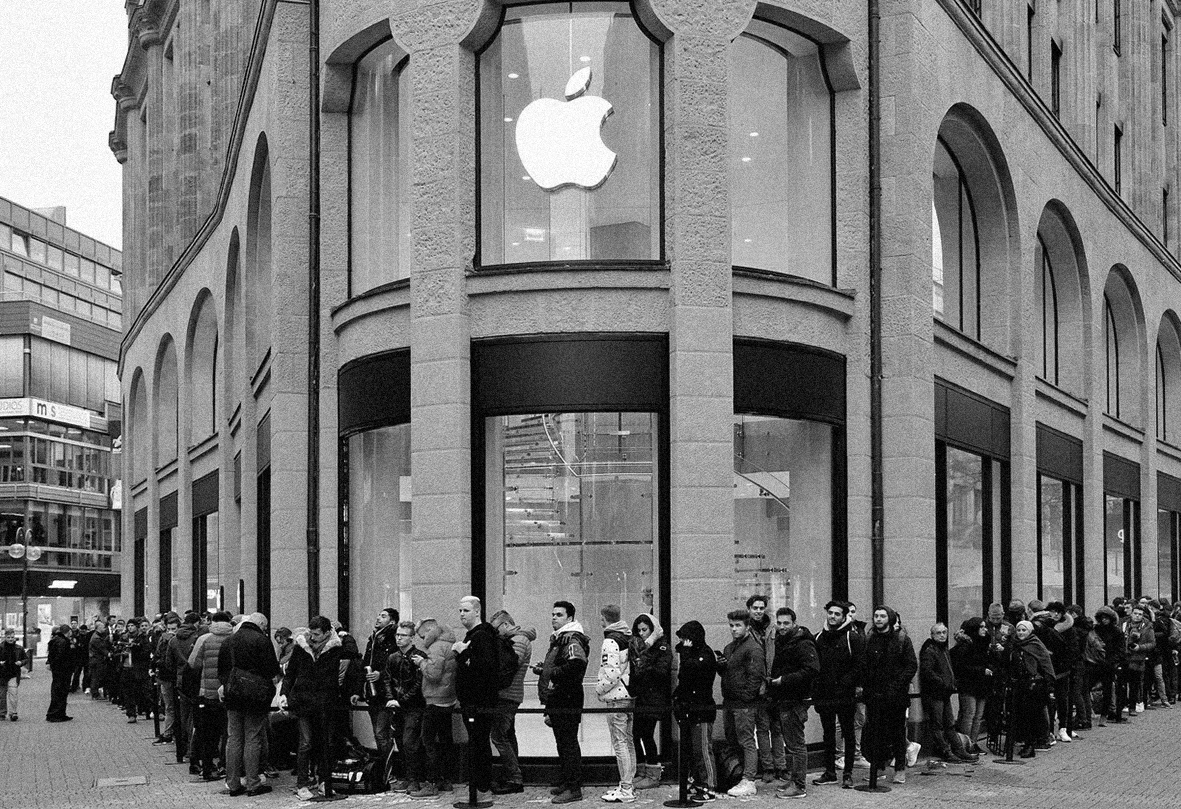
To answer this question, we should take a look at Apple’s history. Apple has currently been around for more than four decades and has had a long time to develop its cult-like following. There is, to my knowledge, no other company that does it like Apple. When the first iPhone came out, Apple already had a cult following. If we go back in time, prior to there being an iPhone. Apple was founded by Steve Jobs and Steve Wozniak. The first Apple computer was called Apple I, and was made in 1976[4]. The Apple I was made by Steve Wozniak. Steve Jobs was the one with the idea of selling the computer and that was how Apple the company was born. What helped Apple grow and have this cult following was all thanks to Steve Jobs, he was the one wanting to have strong marketing campaigns for their products.
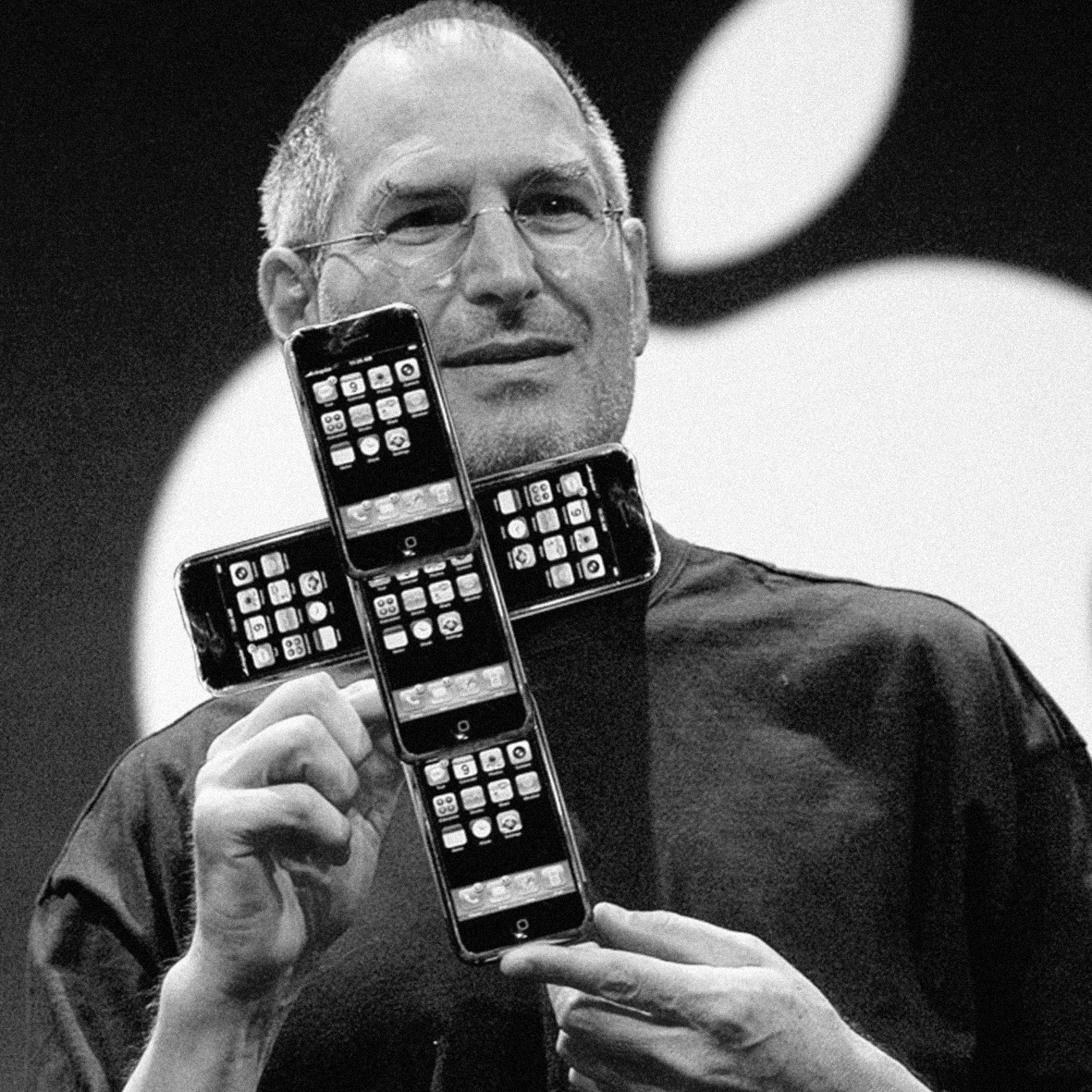
Steve Jobs, the infamous co-founder of Apple, unveiled the first iPhone on January 9, 2007, with his now well-known keynote presentation. He would come on stage with his basic fit consisting of a black turtleneck, Levi’s 501 jeans, and New Balance sneakers. One of the first things that Steve Jobs said was: "Every once in a while, a revolutionary product comes along that changes everything and Apple has been – well, first of all, one’s very fortunate if you get to work on just one of these in your career. Apple has been very fortunate. It’s been able to introduce a few of these into the world".[5] This was the beginning of a powerful brand with an enormous fanbase. After the first iPhone came out Apple, continued making powerful, beautiful, and user friendly devices. You could say that the first iPhone changed the game for smartphones, just how Macintosh transformed computers 23 years prior to the first iPhone release.
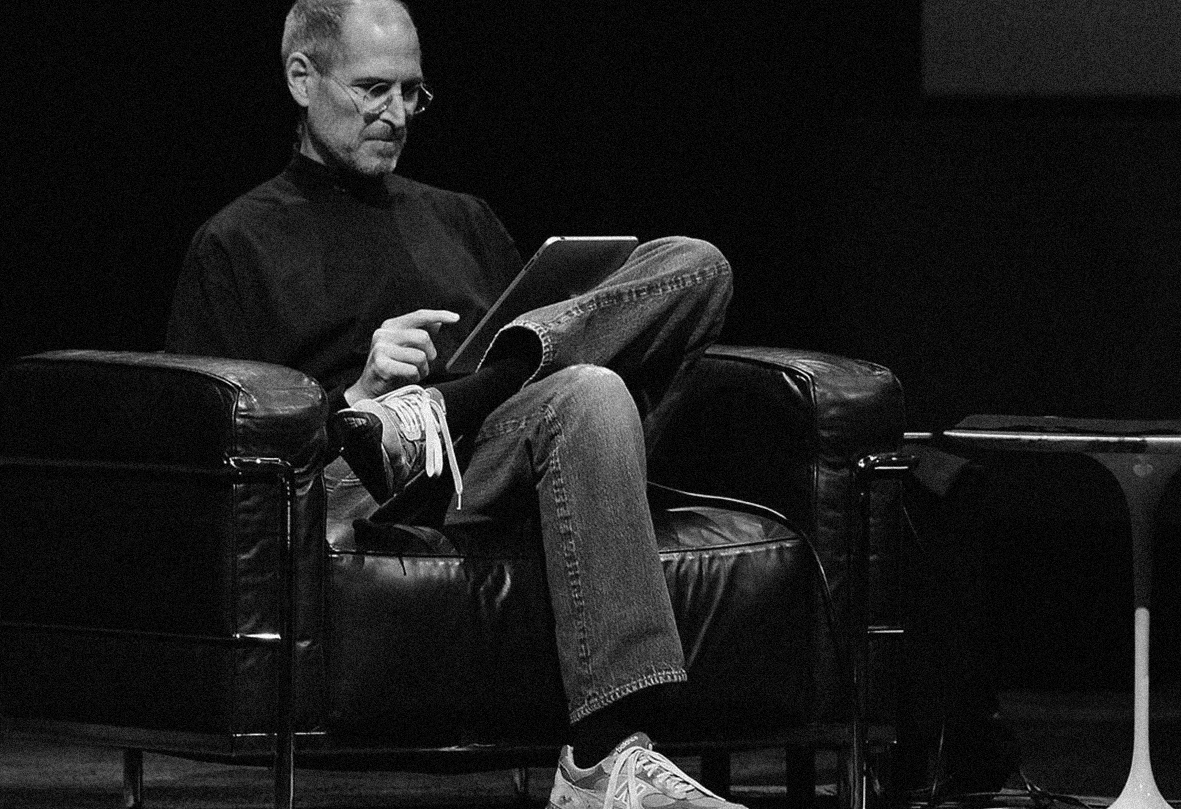
After this day the concept of waiting in line for the new iPhone started. Instead of objectively perceiving it—it being, waiting in line for several days—as a tiresome activity, Apple turned it into a pleasant meme. I should note that I'm using the concept of a meme in the way Richard Dawkins meant when he coined it in 1976 in his book, The Selfish Gene. Dawkins introduced an abbreviation from the word gene—that is, biological transmission—, to imply a cultural transmission.
"Just as genes propagate themselves in the gene pool by leaping from body to body via sperms or eggs", Dawkins wrote, "so memes propagate themselves in the meme pool by leaping from brain to brain via a process which, in the broad sense, can be called imitation."
[6]
Standing in line has, prior to Apple's release events, never been something to share with others by way of imitation. In turn, they made this activity, in a certain way, a pleasant experience.


Cults and iPhones
We might have an idea of cults and how they work, and you might think that you will never enter a cult. If you think about it, you might have a false stereotype of someone who would join a cult, someone who is needy or is seen as weak for instance.
[7]
Be that as it may, no one simply joins a cult—at least not consciously. If you are someone who owns an iPhone right now. You probably bought your first iPhone a couple of years ago and probably didn't think you would still after 10 years still be buying iPhones and supporting Apple. Usually a cult has some type of leader, someone that everyone looks up to and listens to. With Apple that used to be Steve Jobs and now it is Tim Cook. The real Apple fans are glued to their screen to watch Steve Cook do his keynote presentation every year. By buying these products we—either consciously or unconsciously—feel like we are part of a group and Apple wants to stimulate this feeling by making the iPhone very user friendly, and as a result everyone can use an iPhone.
Apple fans are seemingly experiencing intuitive thoughts the moment a new iPhone releases. They know how the iPhone works, it feels familiar. iPhone users will try to back up their decision for yet again choosing an iPhone as their communication tool but in the end of the day the majority of people who buy an iPhone buy it for social status. Selling social status? A seemingly good marketing strategy by Apple.
As opposed to suggesting to them to save their money, their thoughts are anxiously proposing the purchase of the ever so desired new smartphone. At the time Apple stores would happily welcome hundreds of (cult) followers to get their new iPhone since this was the only somewhat reliable way you could get your iPhone on the day it was released. Apple addicts would know that if you didn't wait in line you weren't going to get the new iPhone and you would’ve had to wait for weeks before getting your hands on this device. People who regularly purchase Apple products would not risk it by not standing in line. After all, they feel like they are part of a group, a fandom. Hence, when it comes to Apple it is not about the product, it is about the brand. And as crazy as it may sound, Apple fans like to stand in line. They want to experience how it is to stand in line for the new iPhone. Besides that, they do not want to experience
FOMO (the fear of missing out) having to wait a couple of weeks while all of your friends are talking about how great the new iPhone is. Apple has made us think that we have some type of status for owning an iPhone, they make you believe that you don’t belong to the club if you own an Android phone.
In the movie Mean Girls, there is one group called the Plastics in North Shore High School they are the most popular girls. The Plastics are made of Cady Heron, Gretchen Wieners, Karen Smith, and Regina George. The Plastics had clothing rules: On Mondays wear colored shoes; On Tuesdays wear shirts with slogans; On Wednesdays wear pink; On Fridays wear jeans or track pants. Comparatively, not having an iPhone, but having an Android phone could make you feel like Regina in Mean Girls, when she comes to the table to sit with the girls and they tell her that she can't sit with them because she is wearing sweatpants on a Monday.
[8]
If you don't want to be like Regina George on a Monday wearing sweatpants you better get the new iPhone on the release date.

On a comparable note, during BBC’s show titled Secrets of the Superbrands, a show in which the world of the superbrands get explored, how they get us to buy their stuff, trust them and even idolise them
[9], they talked about Apple in one of their episodes. They discussed, among other things, the love and connection that people have with the technology company. Furthermore, they spoke about the fact that this love and connection resembles the way people look at religious images—an analogy we’ve spoken about before. Following this comparison, they did an MRI scan on an Apple enthusiast named Alex Brooks. Brooks made the remarkable claim that he thinks about Apple 24 hours a day. During the MRI they showed him images of Apple products and non-Apple products. After the MRI scan the results showed that Apple products trigger the same bits of the brain as religious imagery triggers in a person of faith.
Similar to the study done by the BBC where they could see that pictures of Apple products activate the same parts of the brain in its fans as religious images trigger in a person of faith, a neuroscientist at the University of Oxford, Sundeep Teki, said that this strategy can cause the same effects of addiction for some people. Teki writes that "the act of seeking and realizing what we desire triggers activity in the reward network of the brain (in a region called the striatum) that is accompanied by the release of a chemical (or a neurotransmitter) called dopamine, which reinforces such compulsive behaviors."
[10] It should be noted that dopamine also releases for example when people are gambling, addicted to drugs, or use social media.
Much like the work Google or Facebook does regarding our consumer behavior and tracking our interests to eventually sell to advertising companies, Apple has its own way of monitoring our actions. If you have watched the music video "It's Gonna Be Me" by *NSYNC
[11]
, where each *NSYNC member is an animated plastic doll version of themselves in a box, you will likely understand what I am referring to. Similar to how the dolls are attached by strings to the box, we, the consumers are attached to Apple. These are obviously not physical strings, but rather of a dopaminergic nature, as we discovered in the above mentioned study. At this moment we just want to get our hands on the new iPhone despite us being aware of Apple’s influence they have in our lives.
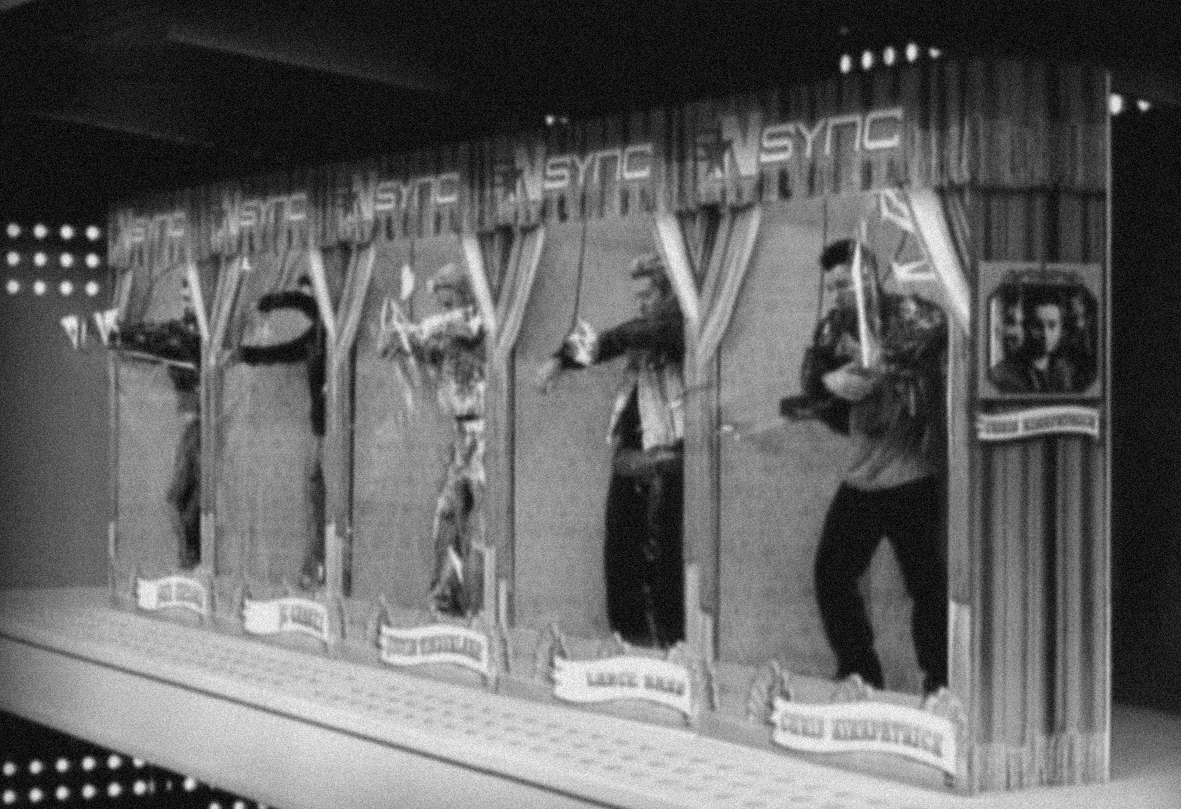
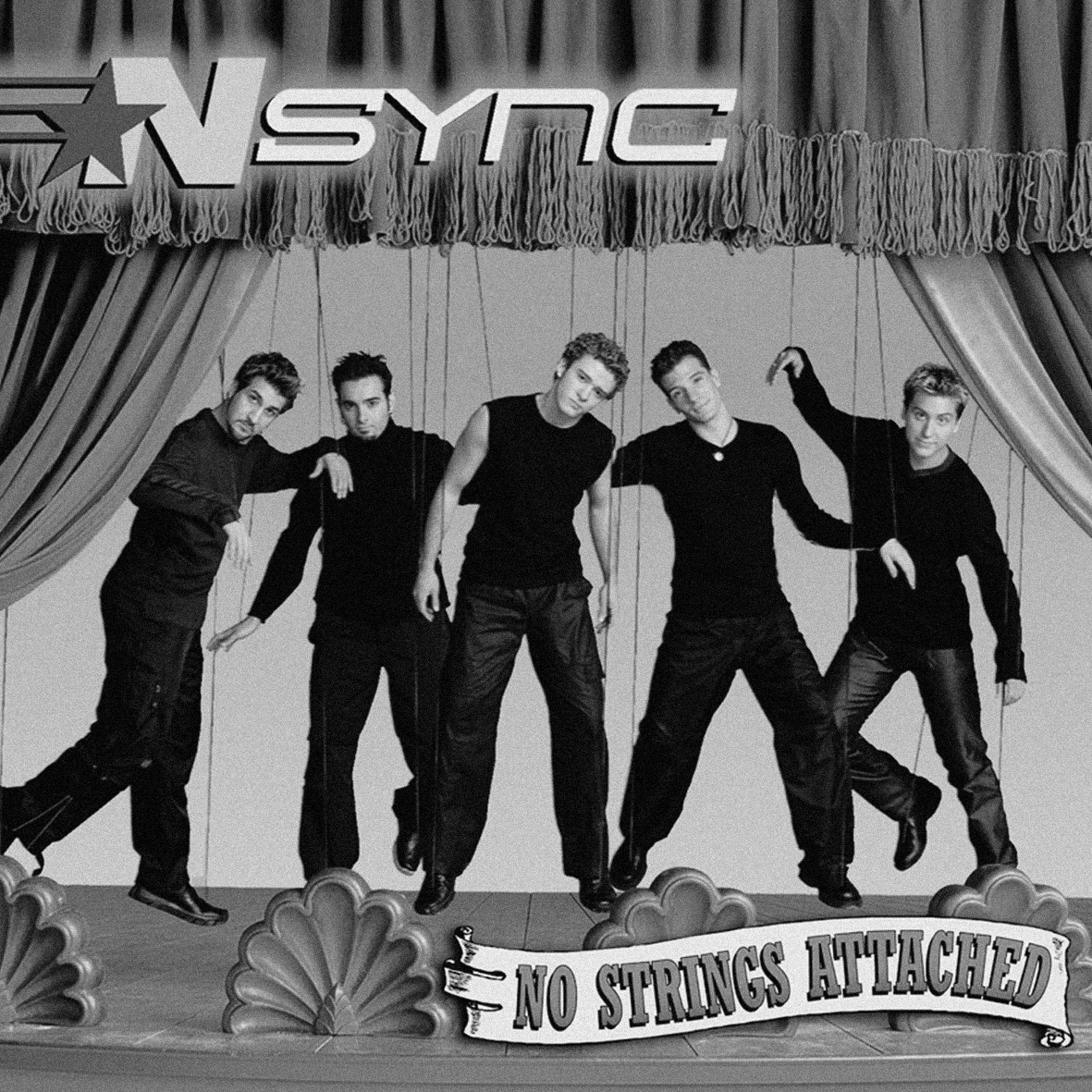
I admittedly am aware that Apple controls me. I accept the fact that I depend on that (somewhat) crazy company, and they are proudly attentive about the fact thatI I'll probably keep buying their beautifully packaged products. Apple knows their users, they know that we will adapt our lives around the new iPhone. For instance, the removal of the headphone jack didn’t develop into a problem. Similarly, people simply accepted an iPhone without a physical home button. Even though these little changes might occasionally take some getting used to. People who love Apple products will nonetheless keep coming back. It's not just a relationship with your current iPhone but a relationship with the company developing the phone itself. You need Apple but Apple also needs you and the rest of their cult followers. It's not a one-sided relationship.
The presentation of this device is largely a product of the late Steve Jobs, who created the perfect little device for you also called the iPhone. Similar to how The Powerpuff Girls were created in the populair cartoon, by adding “sugar, spice, and everything nice”
[12]
, I imagine the iPhone came into being. Although, instead of “sugar, spice and everything nice,” Jobs added his own special ingredient, we will probably never know what this special ingredient is, but it resulted in the user being addicted to their smartphone.
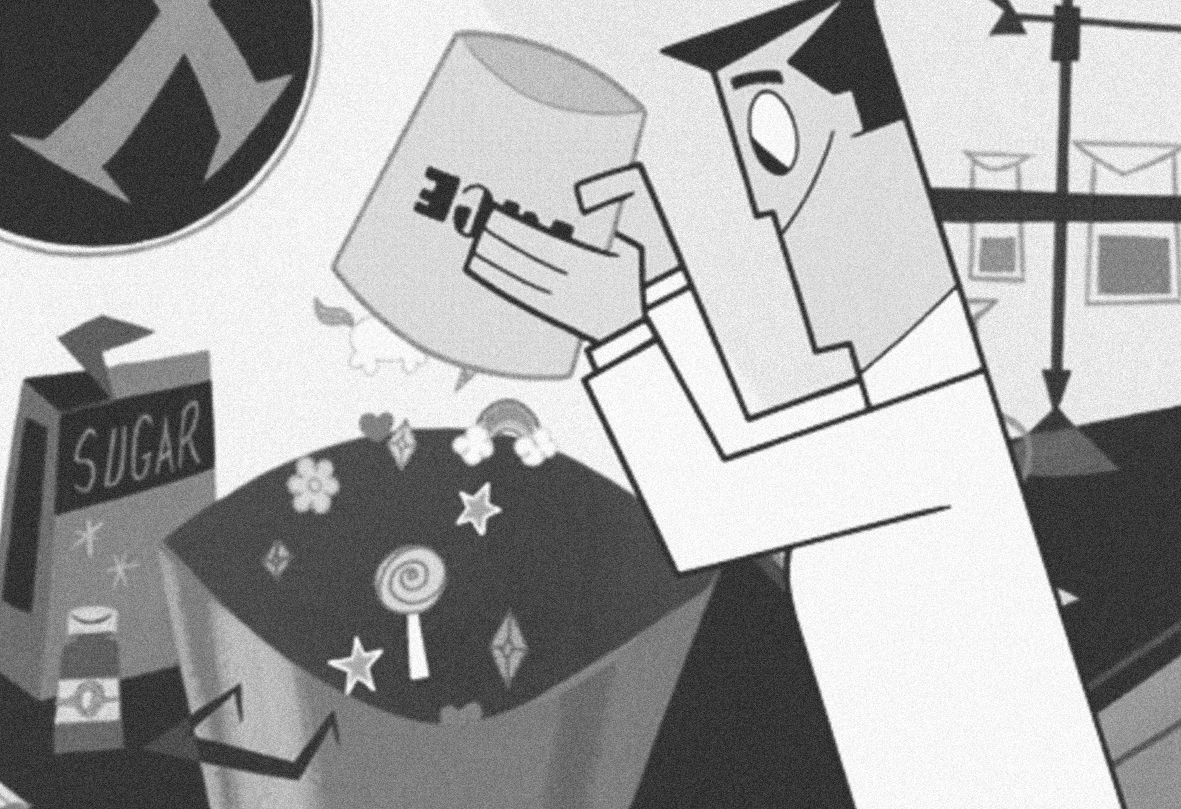
Digital FOMO
I must admit, I, occasionally, love my iPhone as much as Kanye West loves himself. You could say that my iPhone is my favorite possession. From the moment we first met at the Apple store there was an instant connection. We take care of each other by making sure they are protected with a protective case and updated with the latest functions available. When they need to be charged I am here for them. During the day they light up and trigger a particular type of curiosity in me. All sorts of questions are going through my head (unconsciously): is it a message from my friend? Is my crush sliding into my dm's? Or did I acquire a new Tinder match? However, this is a two-sided relationship. Meaning, aside from me being there for them, I expect something in return from this insentient device—an eye for an eye, as they say in the Bible. For instance, my iPhone saves me from awkward situations like waiting for my drink at Starbucks or standing in line at the grocery store. Although, it's not as if there is another viable option? It doesn't matter what I am doing, but the moment I see my phone light up, I will drop everything I am doing and check my phone. This activity has become second nature to me to a degree where being aware that I have a notification and not responding, feels genuinely unnatural to me. However, I am, in all likelihood, not the only one who continuously keeps unlocking my device during the day.
Tinder flirtations
Research, for instance, tells us that people spend an average of three hours and 15 minutes on their phone. This long period of time is distributed over the, on average, 58 times a day that people check their phones
[13]. And of those 58 times, admittedly half of it happens at work. More often than not, we pick our phone up and spend less than two minutes looking through our usual apps and notifications—provided that we actually have received any. At first glance, this seems all rather useless, seeing that from the moment we wake up, our phone is with us. The very first thing some people do when their alarm goes off is reach for their phone. We subsequently check some news sites or maybe check Instagram for a while. Additionally, being able to infinitely scroll on most social media apps also doesn't help. Next thing you know, it’s 9 a.m. You're still in bed staring at this little device that holds everything you love and hate. During the day we repeat this unproductive routine where we check our devices for no particular reason, other than boredom.
At the same time we lose track of time while we bent our neck in the most uncomfortable way possible. It simply does not matter where we are located. Either at work, out with friends, or alone in our room, we use every excuse to check our cell phone. We care so much of what happens online that some of us have digital FOMO. The fear that we would miss anything that is happening online while for a change we decide to put our phone down.
On average I pick up my phone 122 times a day—which places me at the higher end of the normal distribution. It feels like someone rings your doorbell 122 times in a day, then opening and closing your front door, with the hope of someone actually being there. Imagine opening the door 122 times in a day, and then seeing no one standing on the other side. And even if there would be someone at the door it's probably not the person you wanted to see at that moment.
As I made clear earlier, being able to scroll through apps an (almost) infinite amount of times, does not help. We get lost in the endless scrolling through Instagram, refreshing our email or swiping left on people from Tinder. We keep opening and closing different doors during the day, while most of the time being disappointed.
Despite the fact that our smartphone gives us the opportunity to find a lifelong partner on apps such as Tinder, the apps themselves have additional intentions that are set up for us to spend as much time as possible on them. The only thing we need to do is take this online interaction, and turn it into a real life interaction. However, that's easier said than done. Around the world there are 57 million people making use of apps such as Tinder. There are enough fish in the digital sea for everyone. At least, that is what they make us believe. Who knows, maybe that prince or princess on that white horse lives on the other side of the world?
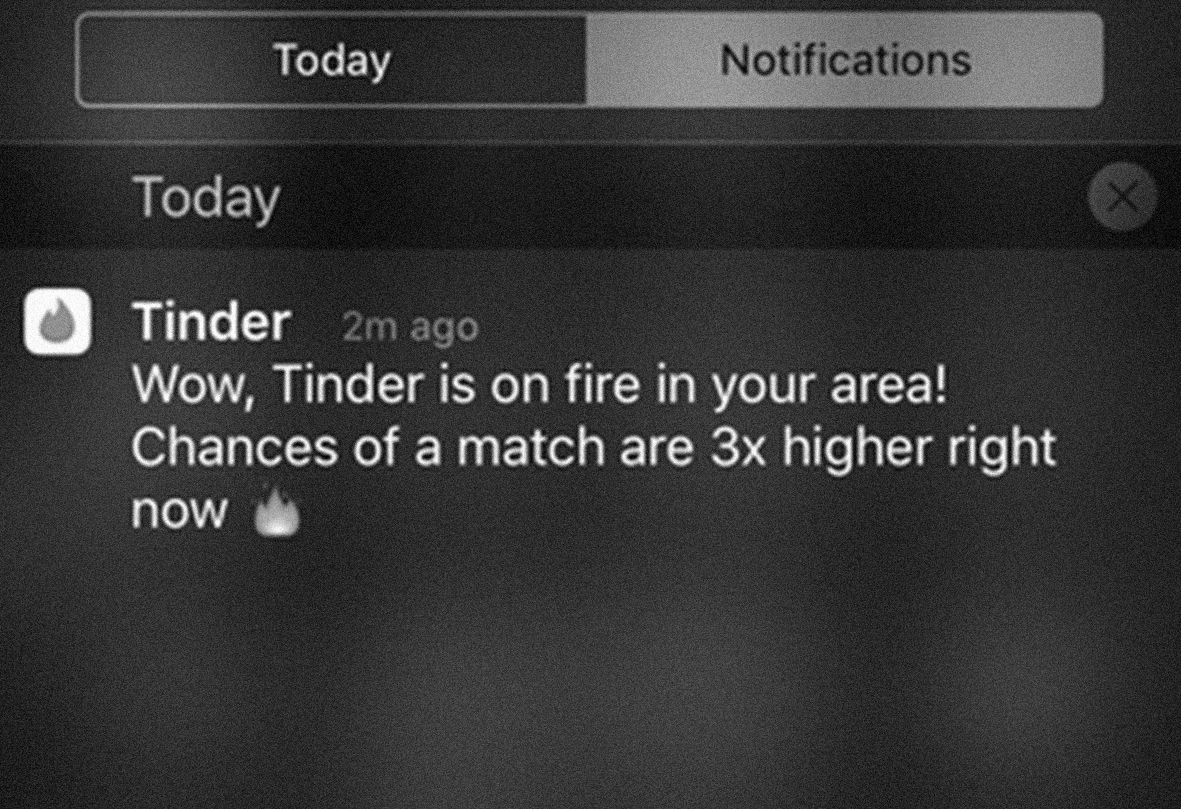
In this generation, many of us engage in Tinder flirtations for months on end, but most of these interactions lead to countless empty and meaningless interactions. The majority of matches never lead to a message, much less a real-life date. And even if there are messages, they often come to an abrupt stop for no apparent reason. Nowadays we observe that online dating has made “ghosting”—when someone suddenly cuts off all contact with you without giving you an explanation—an accepted modern phenomenon. Besides these online conversations not leading to real life dates, the fear of better options also creeps up on us—also known as FOBO, not to be confused with FOMO. With FOBO we want to know every option we have, and then overthink all of those options to find the perfect one. If we finally make a decision and it turns out to be the wrong one we can experience the feeling of regret. We should however question Tinder’s by giving you new potential partner options every day. Are they actually in the business of finding you the perfect match or do they just want you to spend more time on their app?
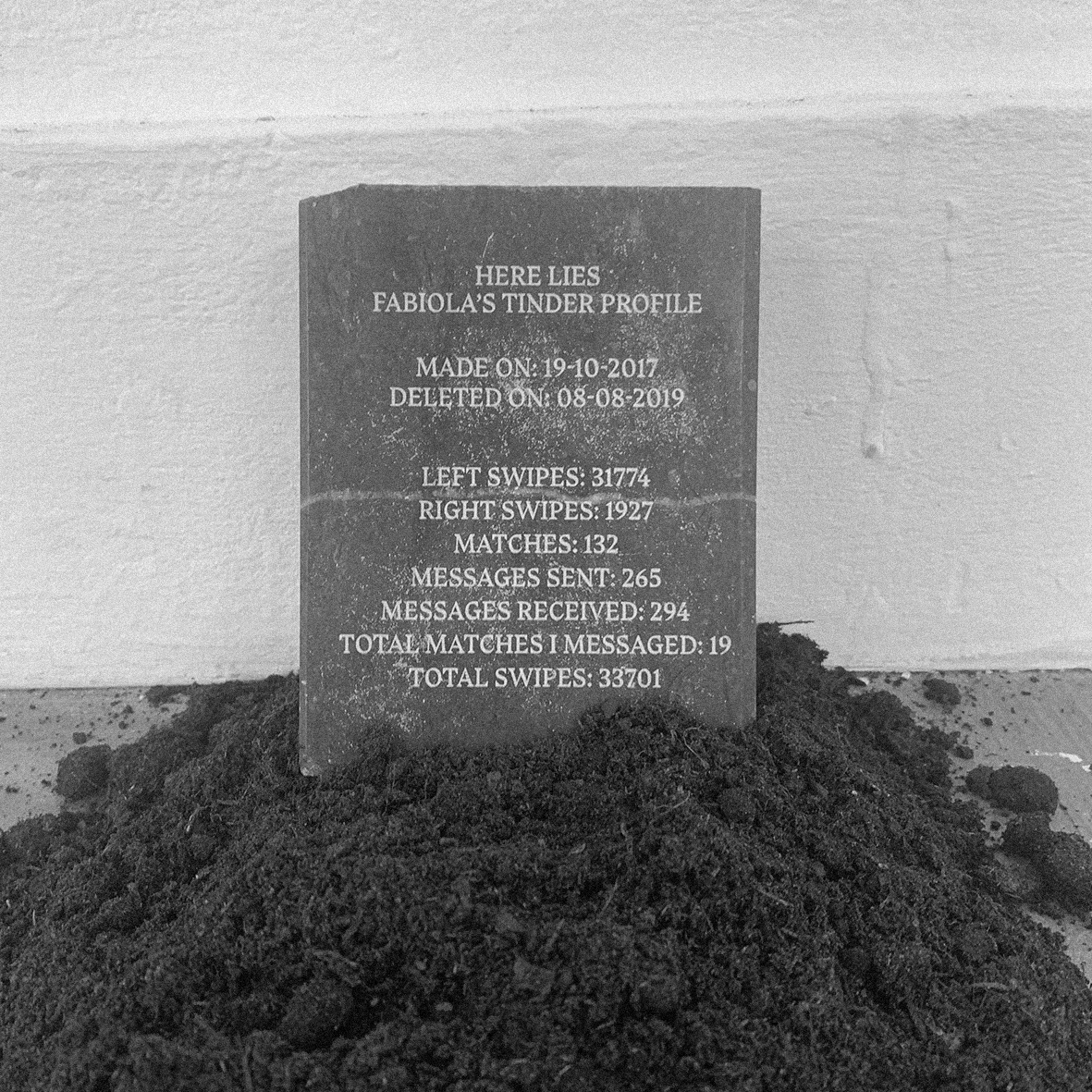
Tinder gives us the idea that there are so many people that could be a match for you. With Tinder it’s the case that if you would swipe thousands of people either to the left or the right, then the first people you swiped left on were probably your best option. It actually means that every time you swipe, the next choice should be a little bit worse of an option. So the longer you’re on the app, the worse the options get. If you’ve rejected someone, eventually, someone you’ve said “no” to is a much better option than someone who’s 1,000 or 10,000 people down the line
[14]. This is just a single app on your phone, but it is nevertheless one that keeps you coming back.
It is easy to say it is the internet fault that our dating culture is like this. A great deal has been written about how social media can negatively influence our relationships. We don’t talk as much, because of the fact that we take advantage of texting; we don’t express emotions, instead we apply emoticons; satisfaction is down because we compare our relationships to everyone else; trust is gone, because we monitor our partners' online behavior; privacy is gone, and breakups are extra painful, because everything that happens is now public. When you get into a new relationship a couple clicks on your phone and it's out to the public. You might update your status on Facebook to “in a relationship” or post a picture of you and your partner on Instagram. People consciously let everyone know they are dating someone and, more importantly, the quality of their relationship. By both showing off their relationship on social media and making their relationship appear better than it actually is, people want you to think they have achieved so-called “#couplegoals.” When they eventually decide to break up the relationship, all of these online memories of your ex can still keep haunting you for years, as long as you don’t digitally delete them.
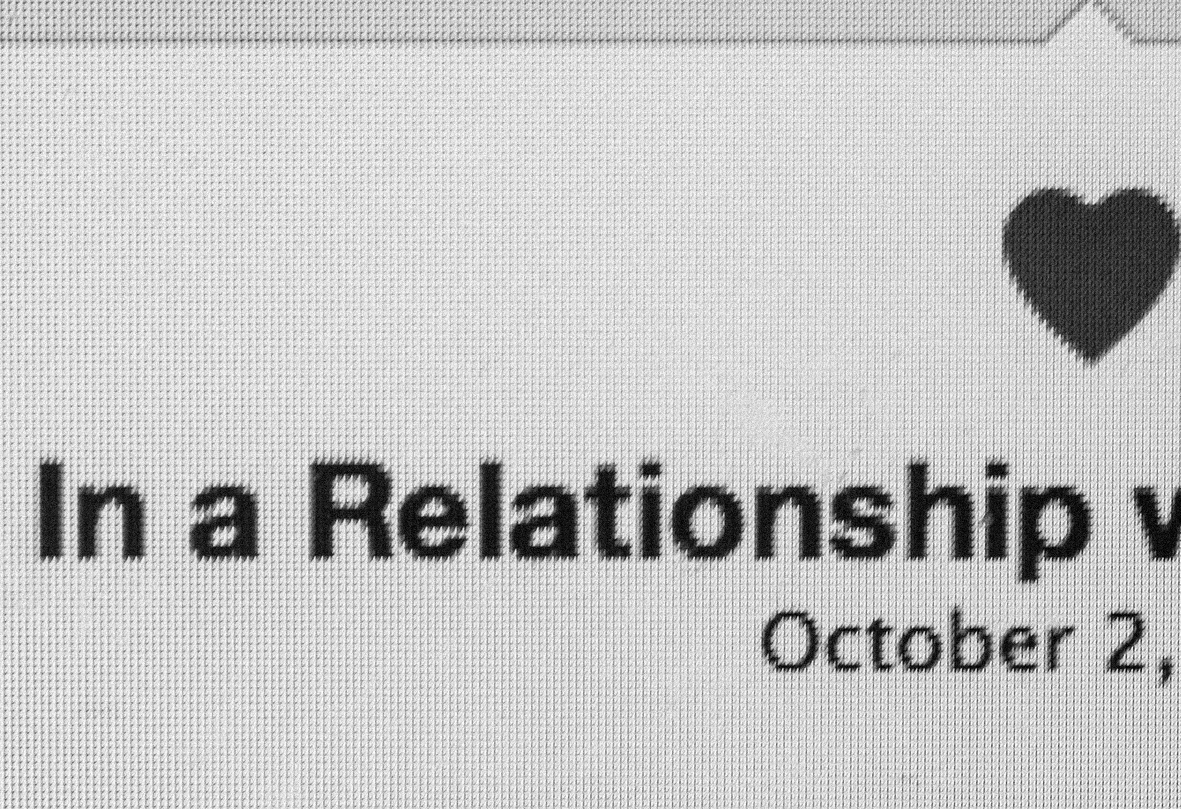
Temptation
Even when we are out with our loved ones, we can’t resist the temptation. We simply can't help but to check our phones at the dinner table—regardless whether it’s allowed or not. Is our 64GB iPhone more important than our friends sitting right in front of us? Deep down inside we know the answer to this question. We even end up feeling like we didn't enjoy our dinner. Instead of interacting with our friends sitting right in front of us, we decide to stare at our phones all night. Containing what? More often than not we don't even see something we are interested in. By doing this, as Simon Sinek (a British-born American author and motivational speaker) pointed out, "we are telling our friends that we prefer to be with the person we are texting"
[15]
, as opposed to our friends who are in the same room. So, next time your friend doesn't ask you to have dinner again, you can reasonably guess the reason why.
We tend to use our phone in the most inconvenient moments not just at the dinner table, and it's not just us, celebrities are a prime example for that; in one scene from Keeping Up with the Kardashians which is an American reality series that follows the glamorous lives of the Kardashian and Jenner families, including sisters Kim, Kourtney and Khloé Kardashian. When Khloe is on her way to jail for violating probation from a 2007 DUI arrest. While Kris Jenner is freaking out about Khloe’s jail time, Kim’s busy taking selfies, to which Kris says: “Kim, would you stop taking pictures of yourself? Your sister's going to jail.”
[16]
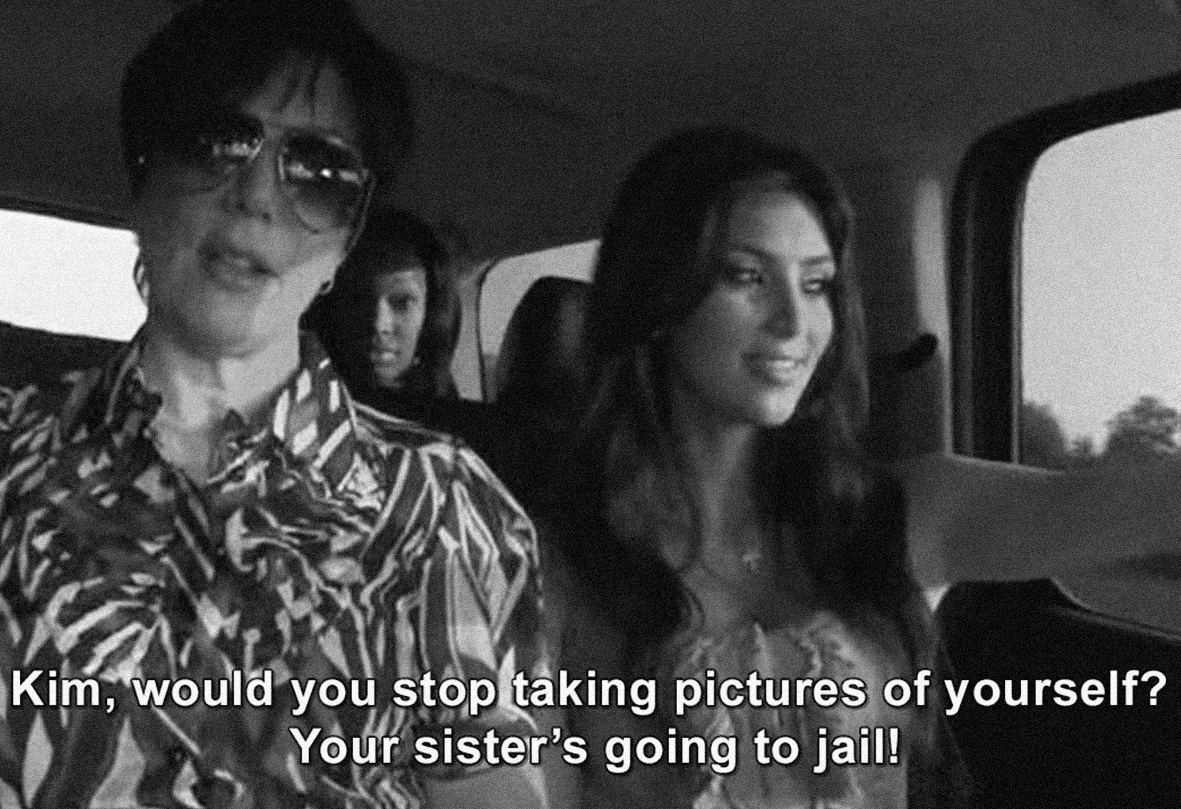
Phantom Ring
We have come so close to our phones that we feel our phone vibrating but when we go and check our phone, there is not one text message, email or instagram like. This sensation is called phantom phone vibrations. In a Ted Talk done by Sherry Turkle, She talks about how mobile technology has become like a phantom limb. Turkle expresses how our phone has become part of us, more than we like to think that it is
[17]. Around 80% of us have imagined a phone vibrating in our pockets when it's actually completely still. Some people (around 30% of us) can even hear a non-existing ring.
[18]
We all know how this vibration feels, we have felt it over a thousand times. But then why do we still imagine our phone vibrating in our pocket when it is not actually vibrating? To explain this occurrence, psychologists use a concept called Signal Detection Theory. This theory "is a means", as Tom Stafford writes, to "measure the ability to differentiate between information-bearing patterns (called stimulus in living organisms, signal in machines) and random patterns that distract from the information (called noise)." [18]In other words, it explains how our brain needs to decide every time the following: is your phone ringing or is not. This phenomenon is more familiar for people who constantly pick up their phone. We can also compare this to another sound, like someone calling your name, but then the decision is relatively much easier. This is a bit more difficult if you are in a noisy room for example. Then it is possible your brain makes a mismatch.
In this day and age we see our phone as being part of us, like an extension to our arms. Whenever we feel lonely, our smartphone is within arm's reach. There is no human being who is with us more than our phone is. If our smartphone is not in our hand, it is in our pocket or on the table very near to us. Your smartphone is not just a little pocket computer. It knows more about you than your best friends know about you. It holds so much information about you; pictures, where you have been, the baby names that you have saved in your notes and we even trust our smartphone with our finances.
Conclusively, we love spending time with our phone to such an extent that we don't realize how much it is harming us. Our phone wants attention from us and we give it to them without hesitation. It only takes a little ring for us to start scrolling and forget what we were previously doing. We even think we feel our phone vibrating when it's not, If I talk from my own experience I have had this happen to me sometimes multiple times a day, having this feeling or no existing vibration in my pocket or even when it's just on my desk I can feel the desk vibrating. When I go and look indeed there is nothing and the disappointment is enormous. We don't even notice that our relationship with our phone is causing a significant toll on our mental and physical well-being. Not to mention that people depend so much on their smartphones nowadays that living without it sounds crazy. Who would, for example, wake us up in the morning if our smartphones wouldn’t be there to do the task?
I look at my iPhone just like Chandler looks at Monica from Friends, like Meredith Grey looks at Derek Shepherd from Grey's Anatomy, how Mitch looks at Cam from Modern Family or just like Emily Fields looks at Alison DiLaurentis from Pretty Little Liars.
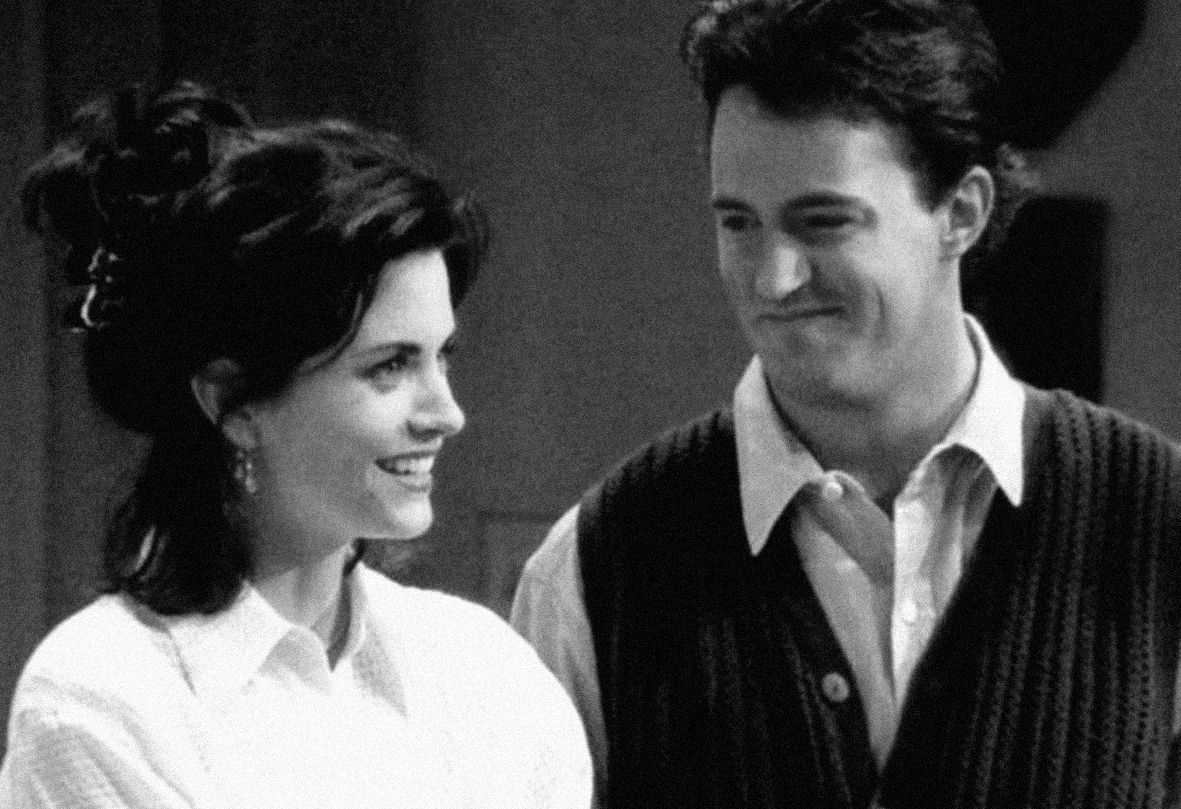

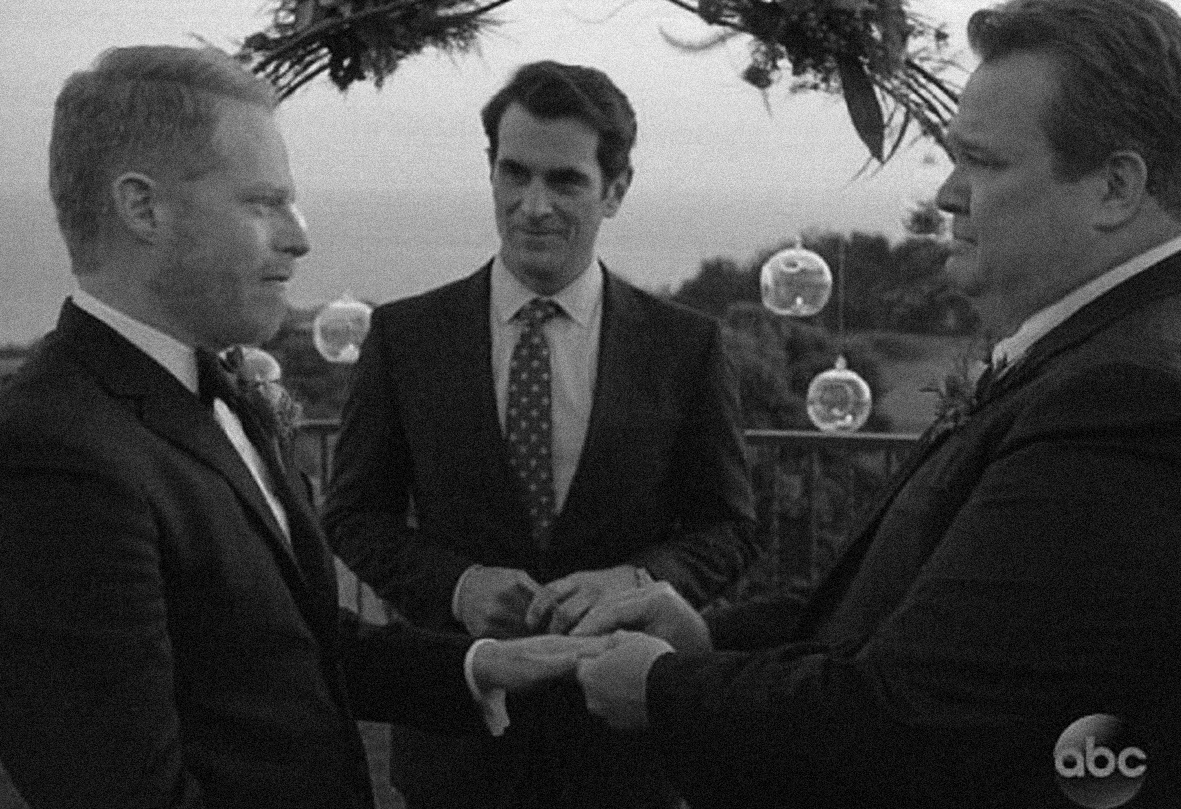

Looking at your smartphone could, as I see it, be compared to looking at your partner. That is, we can have the best time together, but there are also moments that I want to be left alone. However, this is not that simple. We will always find an excuse to reach for our smartphone if not our smartphone will let us know they want attention. Could we have ever imagined that a little device that fits into your pocket would control your life to such an extent?
Let's go back to the moment we got our new iPhone. Prior to starting this relationship, Apple plays a clever game with us. The company includes things that our minds can’t withstand, such as a perfectly rolled up cable, a set of Apple stickers that we will never throw away, and some pretty white headphones all placed in a beautiful box that contains our new device. Who would not fall in love with such a company?
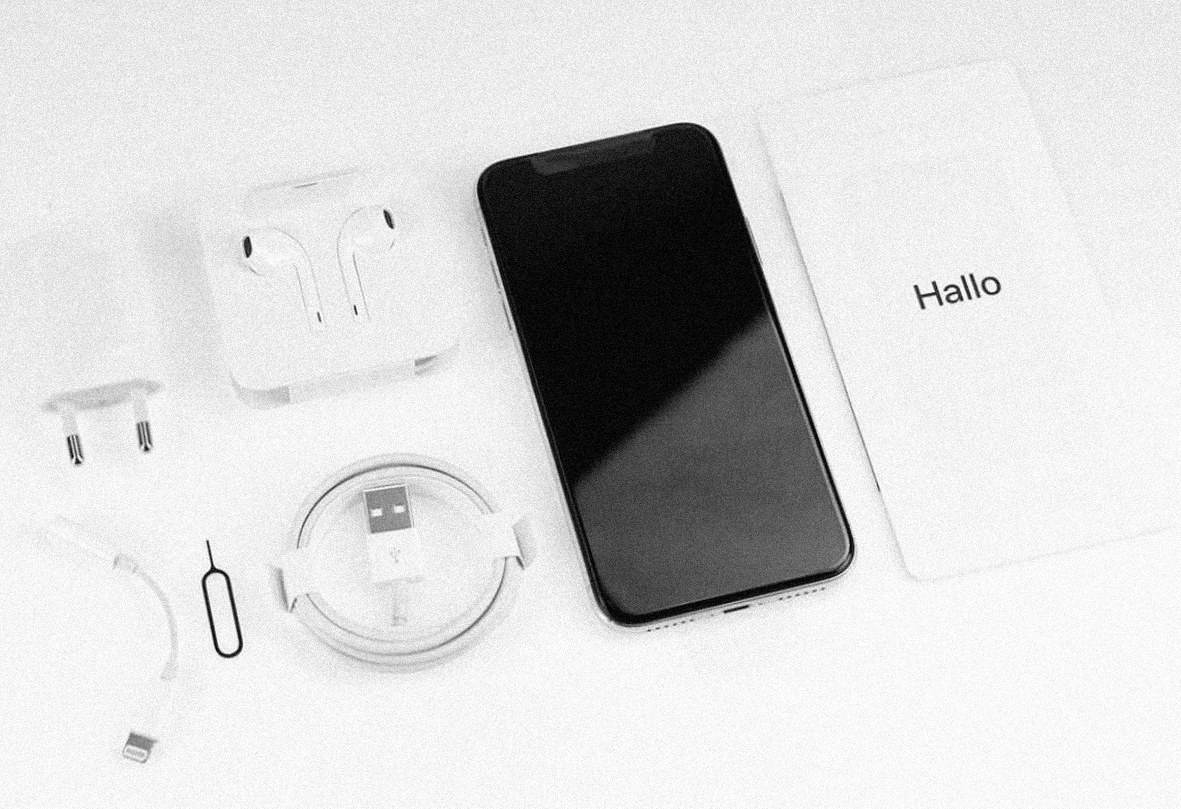
The relationship
Like most relationships, they start with our stomach full with butterflies and our hearts beating rapidly fast. The relationship with our smartphone isn't much different in the beginning. We are so invested into getting to know this little shiny device. We know how they work and they do surprise us every once in a while with a new update. The new iPhone gets introduced with all these new promises: the promise it will always be there for you (as long as you charge it of course), the promise to get you out of any awkward moment by just reaching into your pocket, and the classic promise in sickness or in health, your phone will always be there to entertain you.
Dopamin loop
Coming back to the Ted Talk done by Sherry Turkle mentioned in a previous chapter, Turkle starts by saying, “only fifteen years ago, in looking at the early internet, I felt a sense of optimism – I saw a place for identity experimentation – for trying out aspects of self that were hard to experiment with in the physical real.” [17] Turkle continues with saying that when we first had computers we had to “keep them busy,” there was not much to do for computers. Now they keep us busy, very busy. All of this happened in only fifteen years. We have changed the way we use smartphones, we have created a relationship with them we never expected to have.
This love for our smartphone can, unfortunately, become toxic real quick—as we’ve seen in previous chapters. They can become the jealous partner we never wanted. In the beginning we don't notice anything. We never deliberately chose to be in a relationship with our smartphone, but somehow we accepted the terms and conditions the moment we saw that apple logo appear on our screen when we turned our iPhone on for the first time. We are so invested in our new device and are curious about all the new features it has. And this curiosity reflects in our behaviour. For instance, we spent time finding new apps to instal or searching for the perfect case to protect it. We spent day in and day out with our smartphone. Our phones will take up so much time to the extent that we will eventually rely on its functioning. We use them to wake us up, bring us to our destinations, and remind us of our appointments. Hence, I believe that, because of our smartphones, we now all have this power to multitask to a certain degree. Any activity can, as a result, be accompanied by music, selfies or social media updates.
As mentioned in the recently released documentary, This is Paris [19], the celebrity Paris Hilton was the first person who would take personal pictures of herself—something we now call “selfies”—even before selfies were, shall we say, “invented.” She was the first real influencer. "Everyone says I'm the original influencer.” Hilton stated, “But sometimes I feel like I helped create a monster". To put our finger on this gruesome reality, we should ask ourselves the following: Do we actually have a world filled with “little monsters” that walk around with their smartphone?
Comparatively, if we look at traditional relationships, there seem to be a lot of similarities between a new relationship with another human being and relationship with a new smartphone. The beginning of a relationship is the easy part. Everything feels new and exciting. We might’ve met online, in a store, or a friend told us about them. At this point, a toxic relationship is not on our mind. Our love for them is so big that our judgment gets clouded. And, in turn, we end up being in a toxic relationship without even noticing.
A toxic relationship with our iPhone could be compared to dating a narcissist. As we know they both love attention and that is one thing we will give our iPhone in large quantities. In the beginning as mentioned before we see a new iPhone as something very interesting. We express this curiosity by our desire to know what the new features are this time. That also counts for a narcissist, they might not have features but they appear very interesting, charming and fun.
[20]If you have had an iPhone for multiple years then Apple has in a way manipulated you to keep buying their products and our iPhone manipulates us everyday by sending us notifications the whole day, everyday. Without noticing it, you consequently might have wasted another hour looking at a screen. A narcissist will also manipulate you from the start of the relationship, in a way you will not notice, similarly as you have bought multiple iPhone's without really thinking about it.
This undetected behaviour can be very dangerous. We get triggered by the multiple notifications we get during the day, the pings, pop-ups, and glowing red dots. Our phone is not designed to help us but to for us to keep coming back to it, even when it's not convenient. These notifications are designed to make you addicted to them.
[21] Our phone will not let us forget we haven't replied to that email yet. Every like, comment, or message will make our phone light up and we will go and focus our resources on our phone. You can compare it to a crying baby that wants attention, but every time it cries it wants something else. We have all probably tried to leave this so-called "baby" home while we go out for a walk or a quick run to the shop. But rather than feeling calm, we feel more stressed, and we worry about the notifications we might receive. Beside the missed messages or instagram likes I could be missing, there is a feeling of absence, like I forgot to bring a part of myself with me. Repeatedly I will reach for my pocket and forget my phone is not in there. Even a small part of us feels guilty for not spending enough time with them—them being an emotionless machine. During the day we keep compulsively checking our phone. This could be compared to new parents checking if their baby is breathing while they are sleeping, I remember my mom telling me she would check on my brother and me while we were sleeping. With the relationship with our phone we know we are spending too much time on our phone, but we nonetheless keep making the (almost) daily decision to spend a large part of our time on our phone.
As mentioned in the first chapter, studies suggest that people get a dopamine hit when looking at Apple products. Similarly people can also get triggered by dopamine when they receive a notification on their phone. A researcher by the name of Kent Berridge, mentions that there are two systems: the "wanting" system (dopamine) and the "liking" (opioid) system.
[22] These systems complement each other. The wanting system drives you to action and the liking system makes you feel satisfied.
If we want instant satisfaction, our smartphone is within arm's reach. Once you start, it becomes really hard to stop. This effect of not being able to stop your actions (in this case, using apps such as social media) could induce what is called a dopamine-induced loop. That is, we get a reward for seeking a particular stimulus, which only makes you want to seek it more.
Occasionally we get an unexpected hit of dopamine. This could be, for example, a text message from a friend we haven't spoken to in a while, possibly your crush that ghosted you months ago, or a positive email that we weren't expecting. In the end, all of the messages, emails, tweets, instagram likes, etc. are unexpected. We never know when they will show up on our phone, prior to receiving them. Dopamine can feel good in the moment, but it distracts us from what we were doing before we got it. It can be exhausting, we keep switching which makes it hard to accomplish anything. Even though we know that this dopamine loop we are in is bad for us, we don't want to get out of it—which is essentially the definition of a ‘loop’.
Never would we have thought we could have a toxic relationship with a flip phone, but now many years later Apple knows how to make you addicted to their device and we all end up in this dopamine loop that is really hard to get out of. In twenty years you will wake up with the iPhone 22 next to you and think, how did we get here?
A close relationship with our phone comes hand in hand with a lack of attention for the people around us like our friends and family. Like mentioned in previous chapters, our phones offer a variation of distractions, like countless apps they make available for us to explore and social media platforms that have infinite scroll options so we always see something new.
For us to get everything out of our phone we must spend enough time with them, how else are we expecting them to get to know us? Friends and family could be the one interrupting that process, they will be the one to tell us not to use our phone at the dinner table or that we should enjoy the moment instead of being on your phone; they are the ones rightly telling us to break up with that toxic boyfriend or girlfriend.
Having our smartphone with us at all times, has, most certainly, become a primary necessity for us. Imagine all the activities we couldn't be doing if we didn't have our phone with us. For example, sharing a picture on Instagram, congratulating a friend for his birthday on Facebook, or texting my mom with the question: what we are having for dinner tonight? All of that happens in less than five minutes. Unfortunately, that is not the only time we spent using our phone. We spent hours looking at our screens; We take our phone everywhere with us as if it's our newborn baby. When we look around us, it doesn't matter where we are, we see people staring down at their phone. We have no idea what they might be doing. They’re possibly working, texting, or simply looking at posts on Instagram. At any given moment, thousands of people are so focused on the little screens in front of them, that they fail to look up. It has turned into the “new normal”. It seems that all of these activities have become basic human needs.
This addiction with our smartphone can make us less connected with our loved ones and even ourselves. Even though it sometimes might feel harmless, the only thing your smartphone wants to do is entertain you for as long as possible. It doesn't care about anyone but you. Entertainment from your phone sometimes isn't always enough. If we always make this decision of choosing our phone over our friends and family, our relationship with our iPhone will eventually become much closer than the relationship we have in real life, with real people. This relationship with our phone can become quite lonely, but we know that without our phone we would really be alone with our thoughts. If we get too close to thinking about things we might not want to think about we reach for our phone to save us and bring us to a place where we forget about things we might have to deal with. They bring us to a place where we can watch videos, a place where we can watch other people live their life. That is to say, a place where we, at first glance, would rather be living.
Digital loneliness
It's funny (or ironic I should say) how a smartphone gives you all the tools to connect with people, your friends or even people that live on the other side of the world but it can, at the same time, hinder your real life connections with people. We will always find an excuse to check our phone even in the company of other people. We are replacing real-life good mornings with swiping away people we look at for three seconds. All this swiping and scrolling is keeping us busy, but busy with what? We keep opening and closing the same app for hours. It's distracting us from ourselves, the thought of being alone with our thoughts scares us. When we are alone we might not think good thoughts all the time and without a phone full of notifications next to us we force ourselves to think about our real life problems. At the end of the day, all this scrolling and swiping is just a bandaid for our real life problems, while time passes in the real world. Eventually, all our productivity adds up to having solely watched a ton of Youtube videos.
Human beings are undoubtedly social creatures who, from a young age, are shown how to communicate. Today’s technology has notably made it much easier to communicate with people and simultaneously made it harder. Couple of decades ago you had to send letters to loved ones by mail, which could take weeks to arrive. By contrast we can now just slide into our crush’s dm's. Doesn't that sound romantic? Even though technology has helped us a lot over the years it also has contributed to our loneliness. For example, we ignore the people right in front of us, instead of looking at the people we are having conversations with. Occasionally we are looking at our smartphone and when we eventually look up we have lost track of the conversation or we didn't even try to be part of the conversation.
Loneliness is an experience in which a person feels solitary. It's a feeling that's, although subjective, very common to us. Having this feeling continually could, as most are probably aware of, be harmful to our health.
[23] The issue with experiencing loneliness is the fact that having people around you, doesn’t necessarily eliminate the feeling. Hence, having our smartphone constantly with us does (unfortunately) not help in overcoming our loneliness.
Nevertheless, having our phone with us can give a sense of peace. We feel like something is missing when our phone is not with us. Nowadays, it's the only thing our brain can think about: the emails and text messages we might have received. This discomfort or anxiety we feel when we are separated from our phone is more likely when people see their phone as an extension of themselves. We must confess that—regardless of how crazy it sounds—we feel a strong attachment to this little piece of metal. If your phone is not in your pocket, we experience a moment of shock and a lot of panic. In our minds we try to think of any place it could be. As is the case with most people, my smartphone is basically always on me. Additionally, we should mentally prepare ourselves for the most undesired outcome—it being lost. Despite these possibilities, we are not so eager to think about these hypothetical scenarios. We question ourselves how people are going to communicate with us. Through a carrier pigeon doesn’t seem like the most efficient replacement. Fortunately you’re not the first who feels this form of anxiety. In fact, there is a name for this type of panic: nomophobia (no-mobile phobia)—the fear of being without, or losing your phone. [24]
As a result of this fear, we try to keep our phone spatially near to us. If possible, it should physically ouch us. Therefore, when we get a notification, we can actually feel it. Even if that means being all alone with our phone. Ultimately, it's just you and your iPhone, opening and closing the same apps for hours.
The iconic 2002 break up
Our smartphone can become part of us, like partners can become one by doing everything together, having the same friends or maybe even wearing the same clothes. A great example of that was when 19 years ago Justin Timberlake and Britney Spears' matching denim-on-denim fashion moment at the 2001 American Music Awards. They matched from head to toe in denim. Essentially, they became one that night. Couple goals, right? My iPhone and I preferably want to match as much as Justin Timberlake and Britney Spears did in 2001.
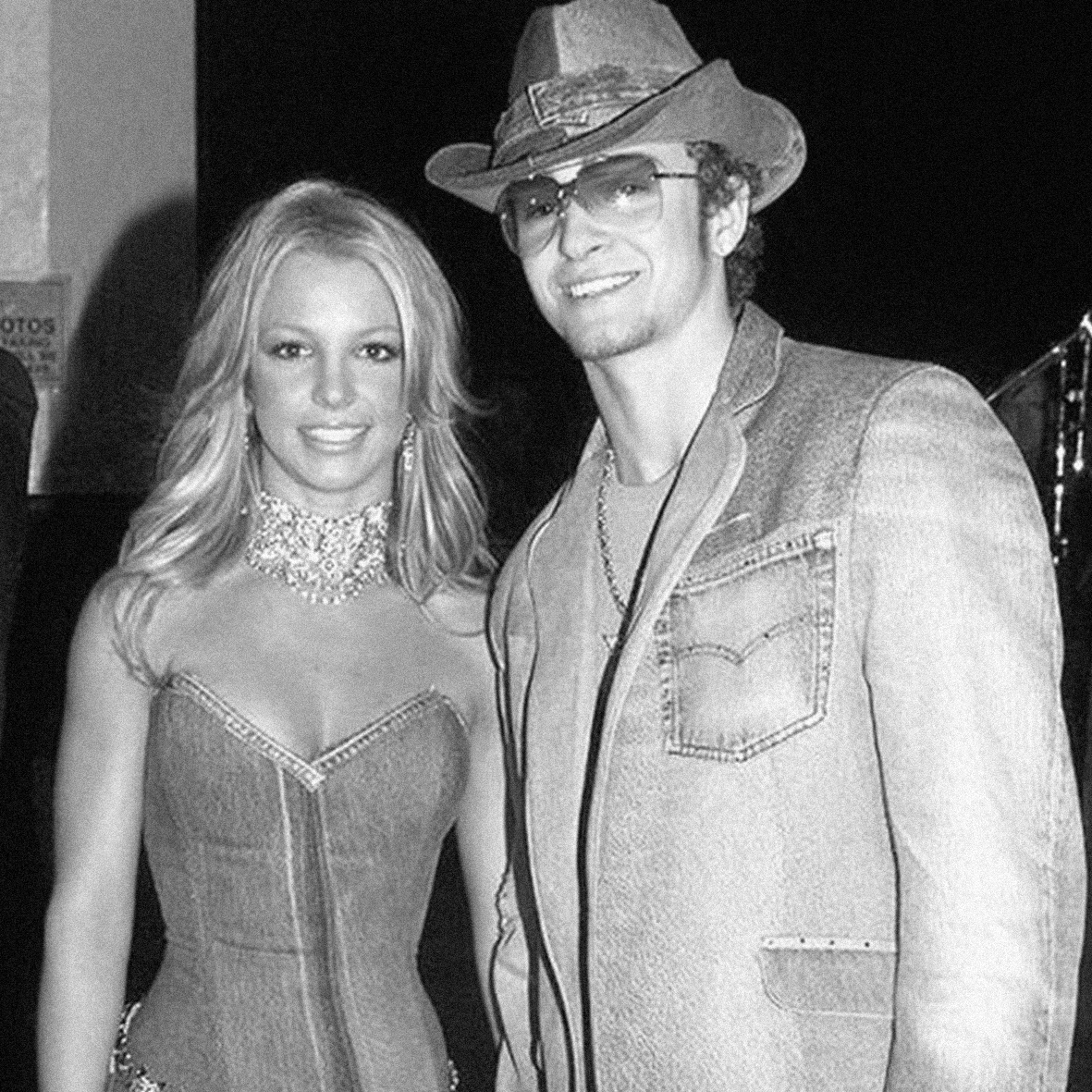
In 2002, Justin Timberlake and Britney Spears broke up after dating for three years. It ended because of cheating. Because of this break up, we got the iconic hits inspired by their separation. "Cry Me A River"
[25] and "Everytime"
[26]. So I guess me and my iPhone are not far off from this relationship.
How does the relationship with our smartphone change our real life relationships? While researching I noticed how many comparisons there are between human relationships and the way we interact with our phone. What’s more, I recognized how people sometimes don't notice that they are in a toxic relationship until it is too late. We, as a collective, simply welcome this toxic relationship with open arms, because we like to spend time with our phones, sometimes even more than with actual human beings. We try to find an excuse every time we reach for our phone even when it's not ringing.
With the use of storytelling, pop culture references, and metaphors, this thesis came to be. In my research I tried to explore this relationship between humans and their smartphone. Examining every part of this relationship, from the beginning till the end, as well as the ups and downs that characterize these relationships. My thesis started with me writing little (love) stories about my iPhone and me in the form of a timeline of a two year relationship. To a large extent, I knew, prior to writing this thesis, that spending large amounts of time looking at this 5.8 inch device was harming me, but I continued doing it.
After doing this research it made me realise how I interact with my phone, how I am guilty of many of these realisations. To get out of any social interaction I don't feel comfortable with, I will reach for my phone, waiting for my train to come, there I go again. It feels like second nature to me. Just how I explained in this thesis how this toxic behavior has become the "new normal".
Furthermore, we came to the realisation that having the new iPhone feels like being part of an exclusive group with an expiring membership. Once the new iPhone enters the market, and you don’t act on this by purchasing one, you (almost) instantly lose your membership. However, if you are willing to say goodbye to your old iPhone, and acquire a new one, you simultaneously obtain an improved social status. Although, we unconsciously are aware that Apple wants you to believe that this superficial status actually makes you better than other people who lack this status. A real iPhone user will accept every design choice Tim Cook makes, even if it negatively affects us... That's love.
Before the thesis process even started I had this fear of writing. Luckily at the time of writing this fear slowly faded away. When I started doing research on this subject I didn’t have any expectations, nor a certain perspective on how this thesis would turn out. I just started the ride and accepted the journey, and at some point during the writing I made it clear for myself what topics I wanted to focus on and what not. The research went from reading articles that were about addiction to cell phones, to iconic moments that happened in pop culture. To complement the information I acquired from these sources I additionally read some poetry books, listened to podcasts about other peoples dating lives, and watched the infamous keynote presentation by Steve Jobs. Needless to say, I was the victim of the occasional gaze at my smartphone. How this combination of research sources would eventually become my thesis? That is something I could never imagine. In the end it was a very enjoyable experience that had his ups and downs.
Conclusively, the tiny computer that I keep warm inside my pocket knows so much about me: It knows where I am at any point of the day, how many minutes I spent looking at any app on my phone, and it somehow knows what to advertise to me. At the same time, they help me when I again get lost while driving or when I need some distraction from the real world. They are right there to cover my needs. Eventually it comes down to the fact that some of us have an actual addiction to our smartphone, and by acknowledging that, we already made a step into the right direction. Nowadays I might not know what I would (hypothetically) do without my iPhone. But who knows, at some point in the future there will be another device everybody is addicted to and we will look at our iPhone in the same manner as we currently view a flip phone.
Hello! iPhone 13, nice to meet you!

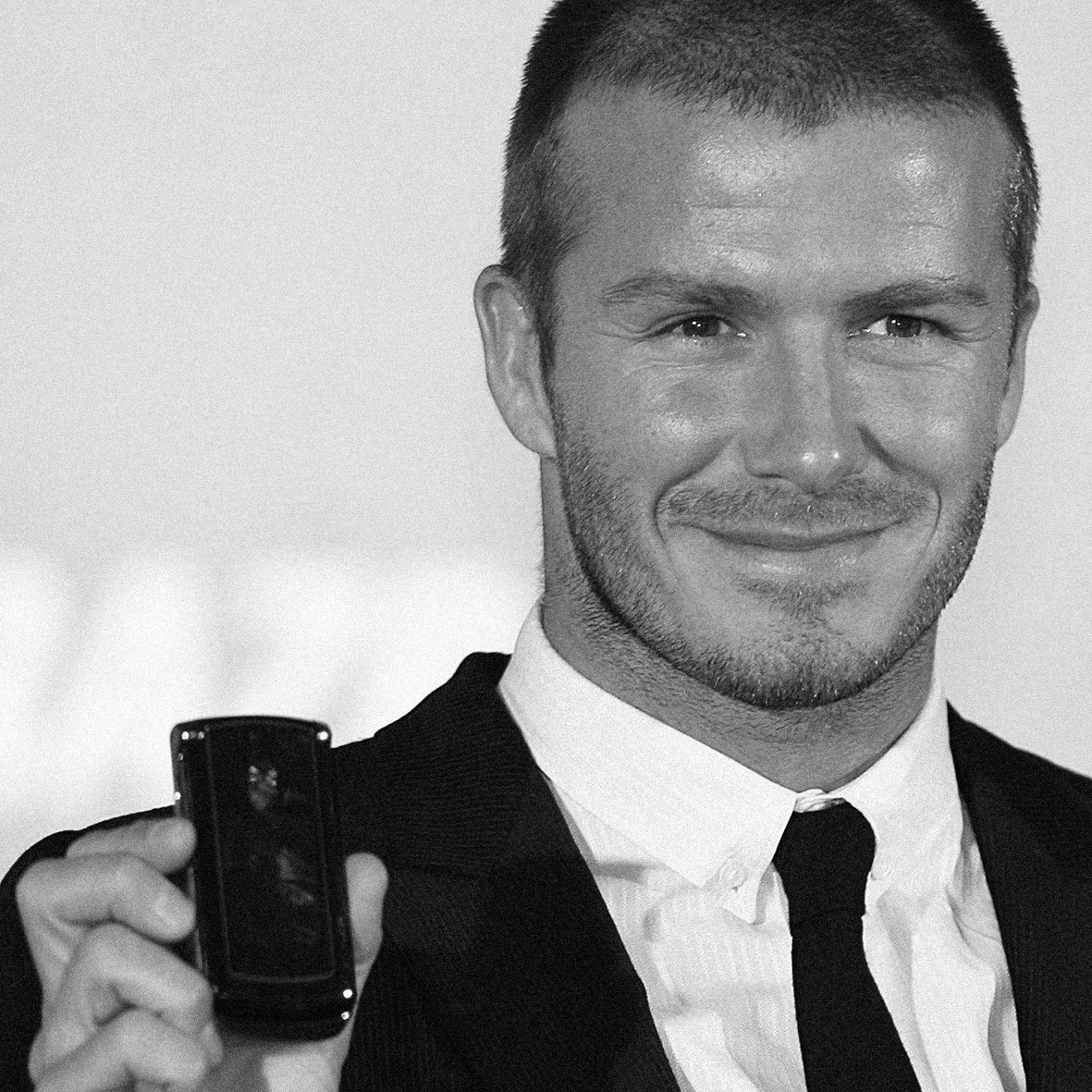
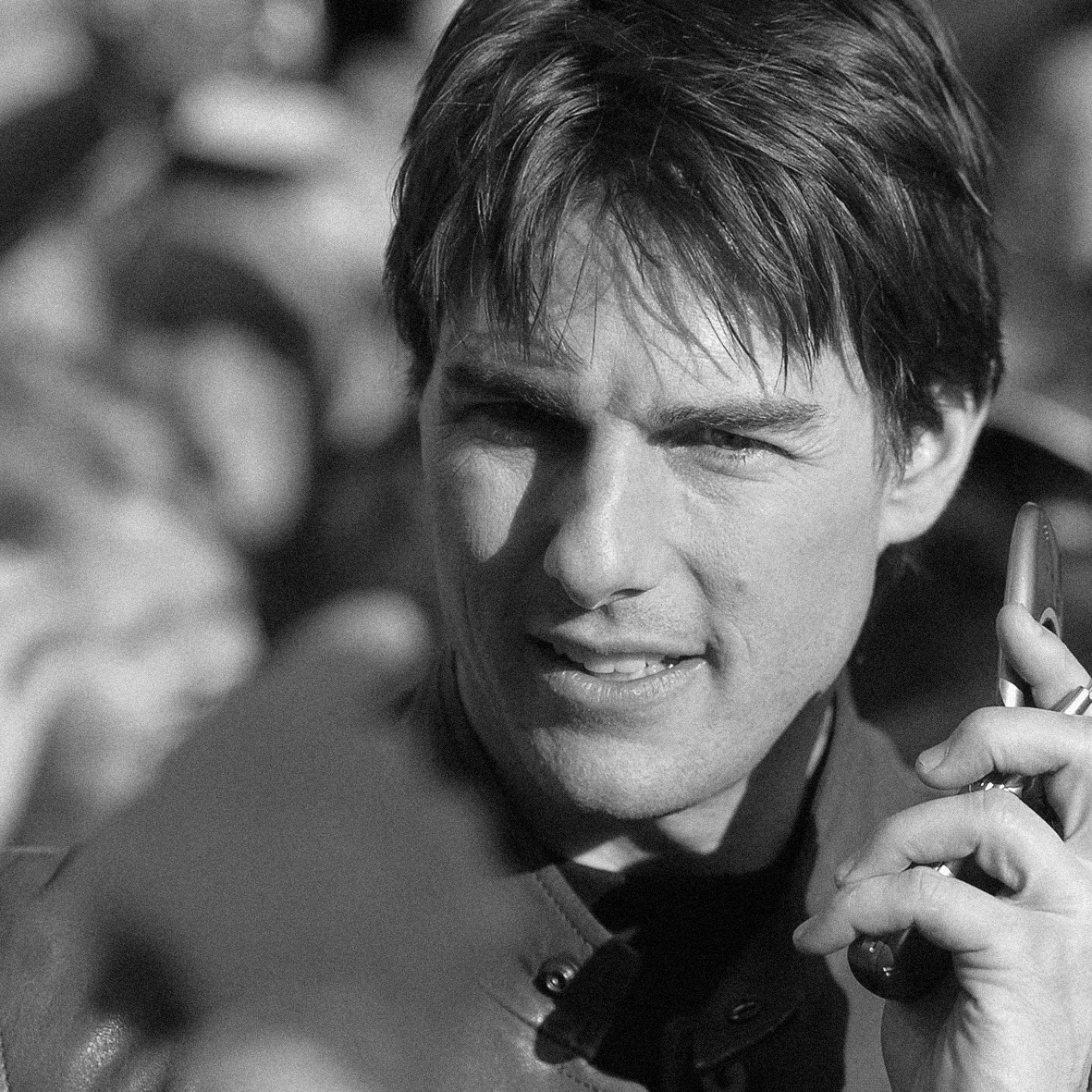
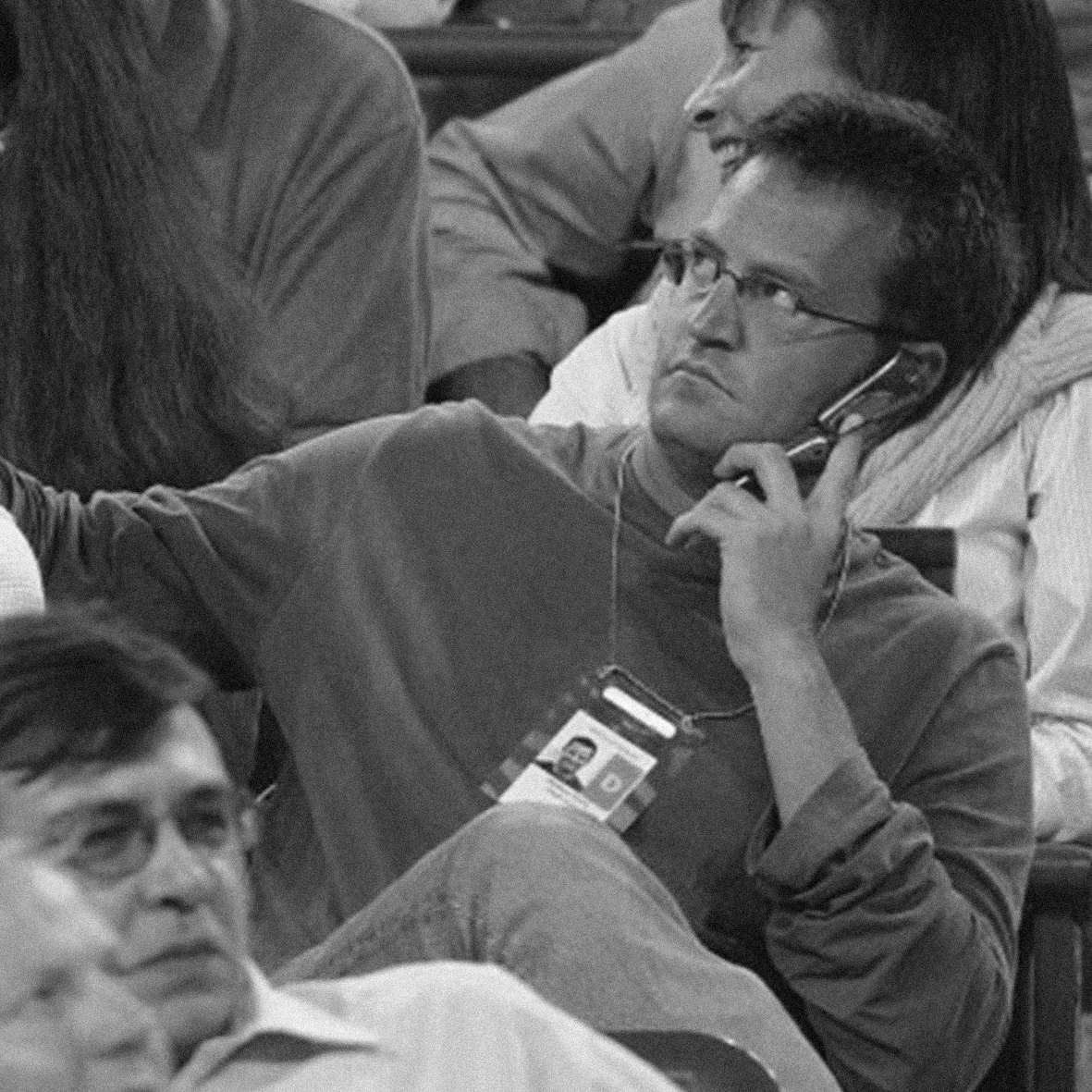
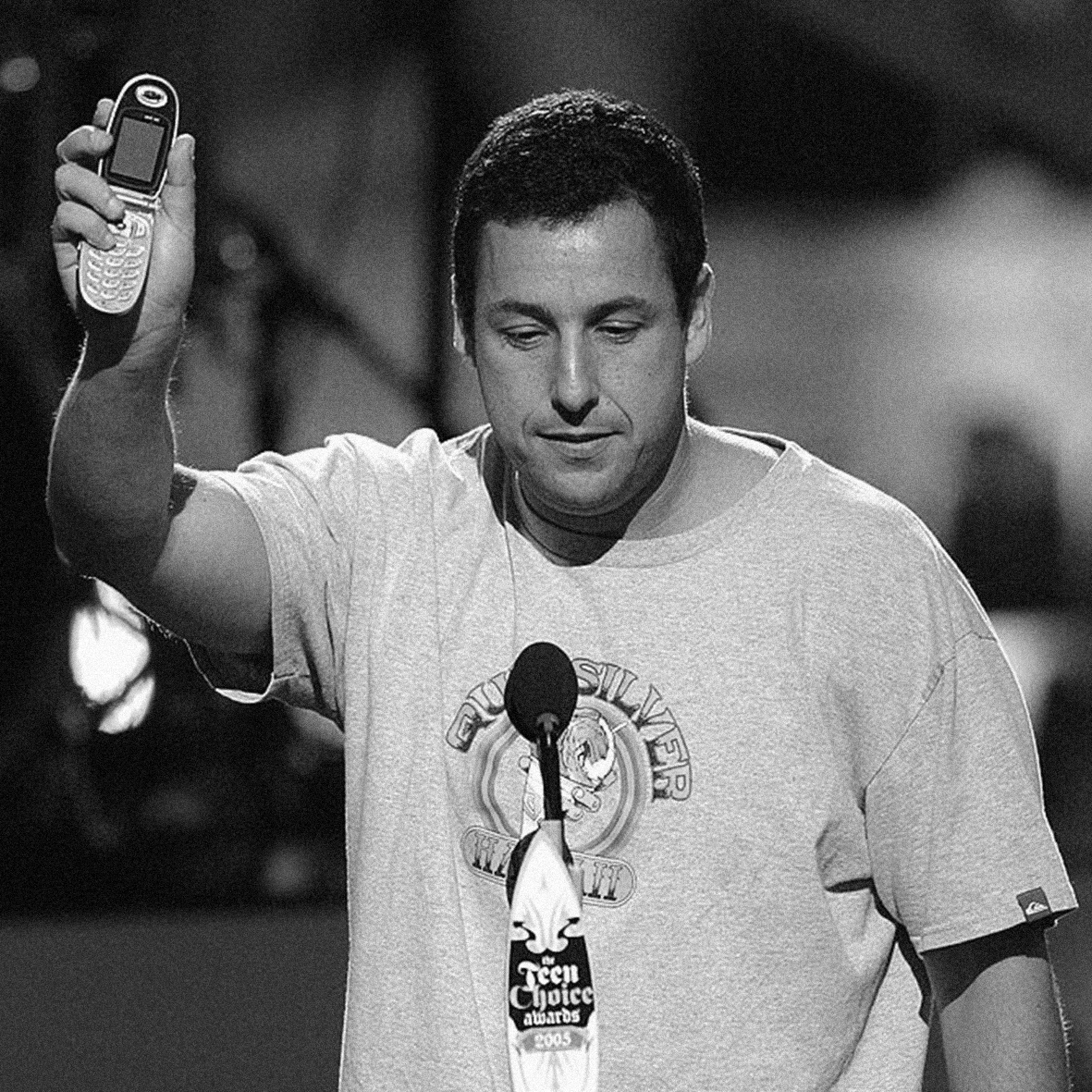
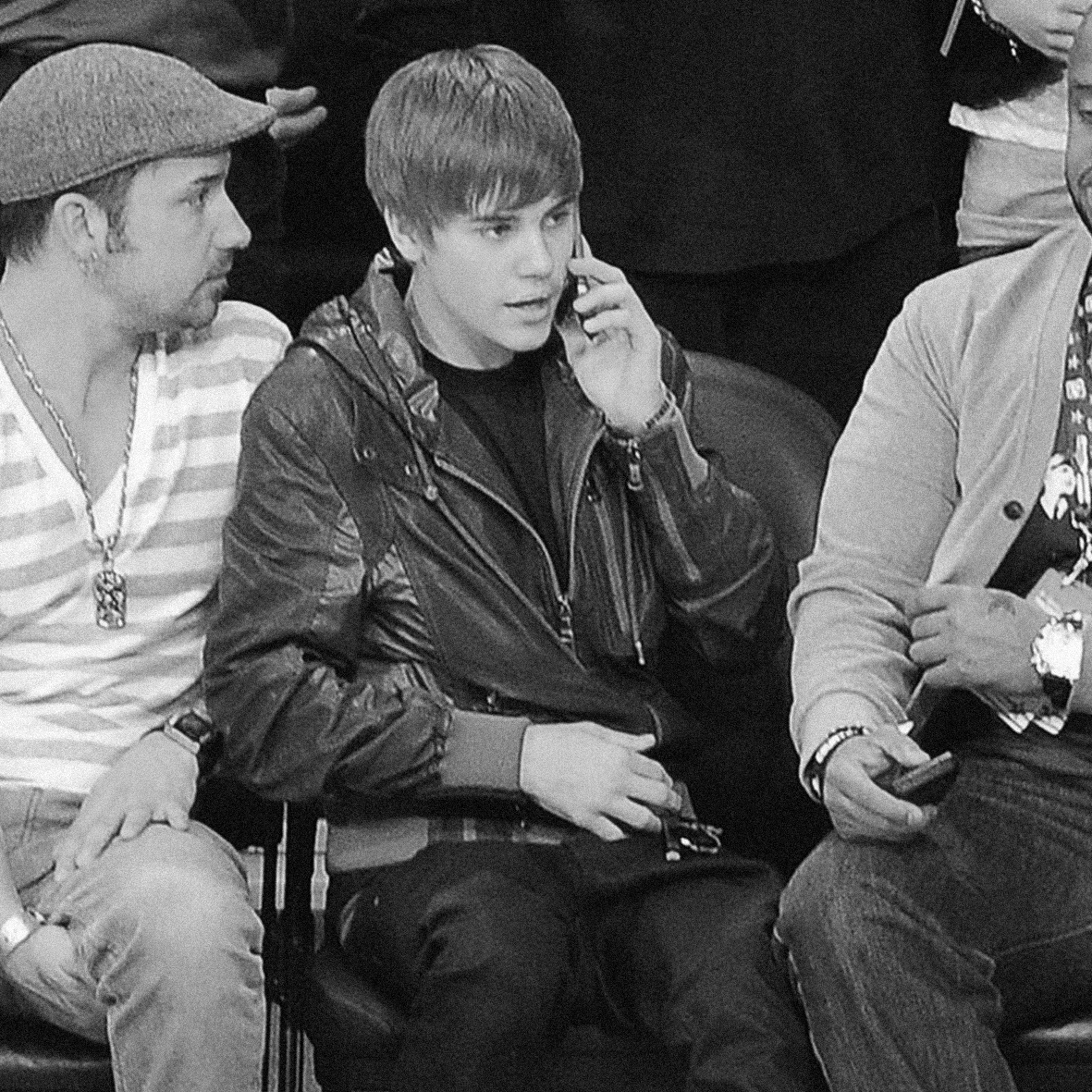

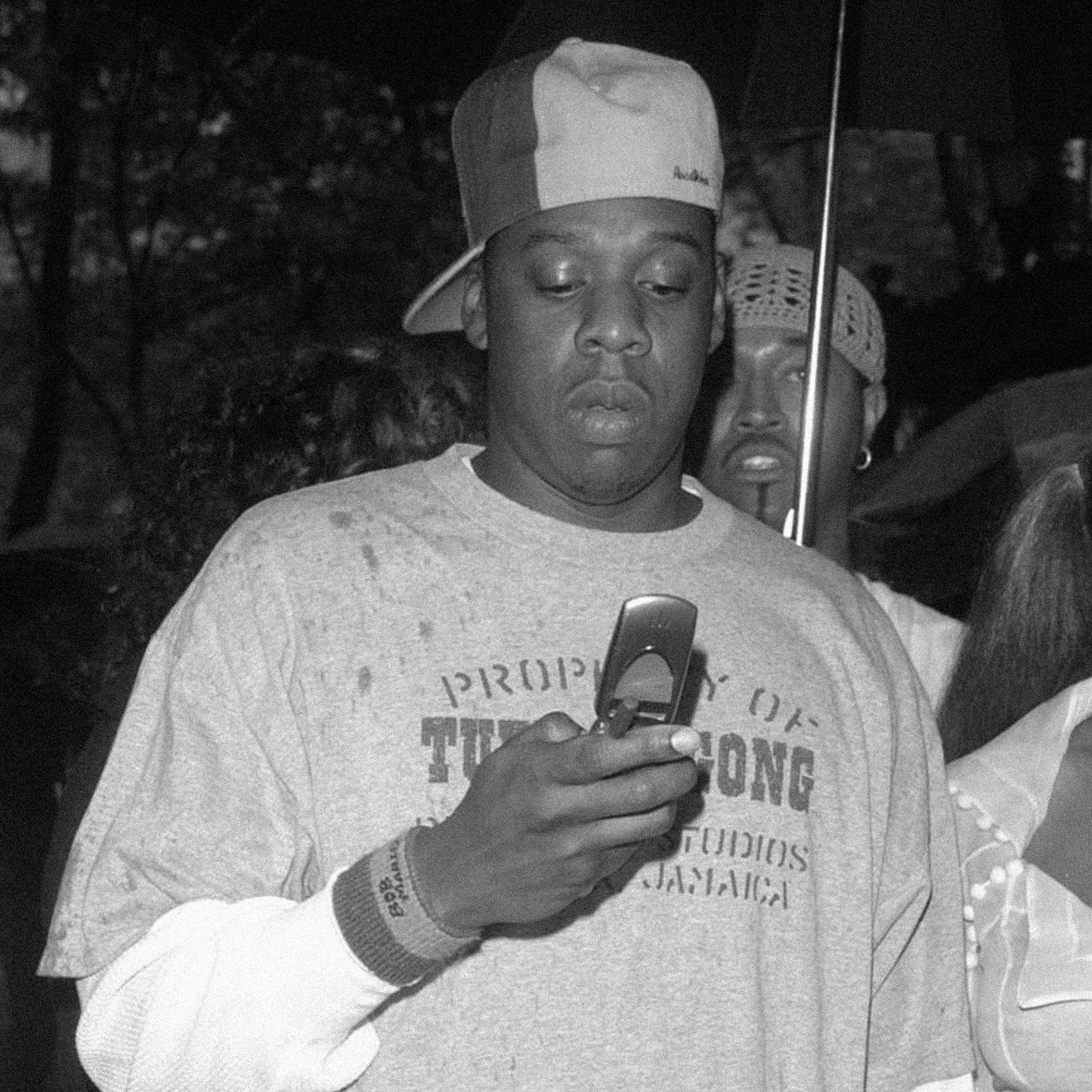
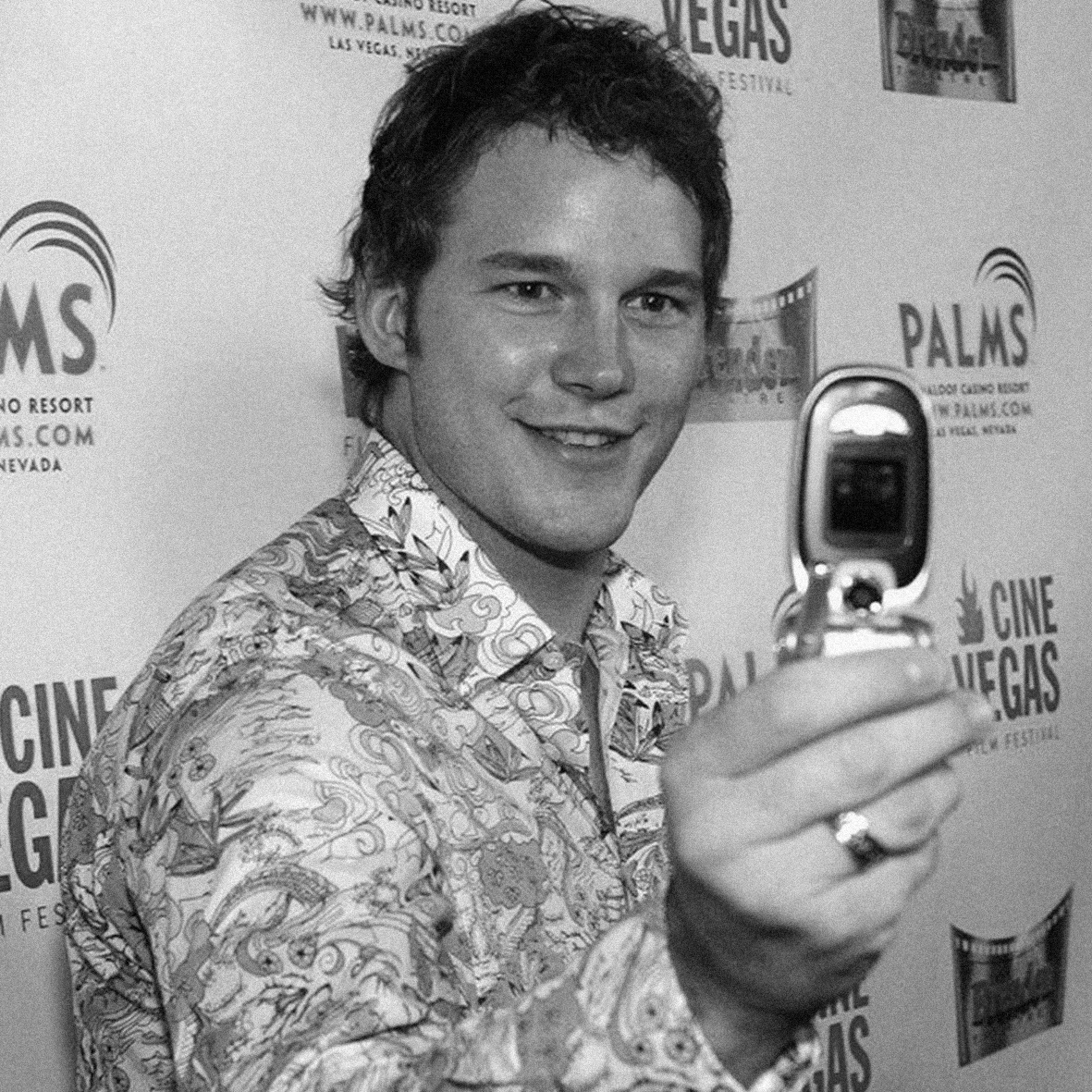
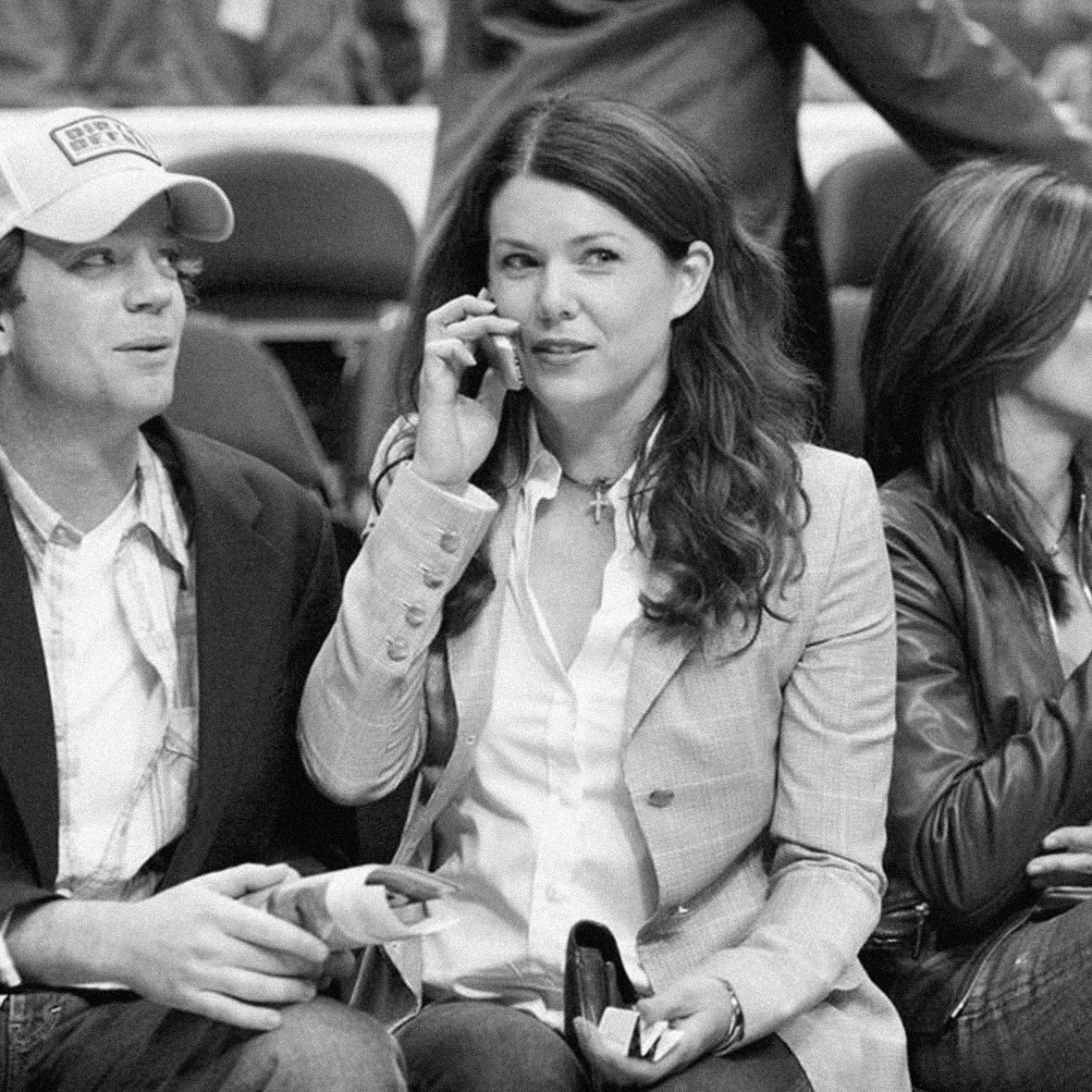
Bibliography
Apple
Bates, P. (2012, November 17). When Did Apple Become Popular? A Brief History of the Rise of Apple. Make Use Of. www.makeuseof.com/tag/rise-fall-rise-apple-history/
Mogg, T. (2011, May 19). Apple causes ‘religious’ reaction in brains of fans, say neuroscientists. Digitaltrends. www.digitaltrends.com/apple/apple-causes-religious-reaction-in-brains-of-fans-say-neuroscientists/
McAlone, N. (2015, September 28). Apple is “obviously a cult,” says NYU professor. Business Insider. www.businessinsider.com/nyu-professor-says-apple-is-a-cult-2015-9?international=true&r=US&IR=T
Mitchell, D. (2007, March 24). Apple Cult Becoming a Religion. The New York Times. www.nytimes.com/2007/03/24/technology/24online.html
Lewis, R. (2014, September 2). How Apple Neurologically Hooked Its Customers. Forbes. www.forbes.com/sites/robinlewis/2014/09/02/how-apple-neurologically-hooked-its-customers/?sh=4678e6f8ff00
Laskow, S. (2015, September 25). We Asked a Cultural Historian: Are Apple Stores the New Temples? Atlas Obscura. www.atlasobscura.com/articles/we-asked-a-cultural-historian-are-apple-stores-the-new-temples
Spence, E. (2015, October 13). The Cult Of Apple And The Church Of Cook. Forbes. www.forbes.com/sites/ewanspence/2015/10/13/apple-store-design-church-cult-apple/?sh=5e04cdfd2abf
Apple: Brand, Cult, or Religion? (2012, January 18). Observatory Blanquerna. www.obsblanquerna.com/apple-brand-cult-or-religion/
Steve Jobs iPhone 2007 Presentation (Full Transcript). (2014, June 4). Sing Ju Post. www.singjupost.com/steve-jobs-iphone-2007-presentation-full-transcript/
Rawlinson, N. (2017, April 25). History of Apple: The story of Steve Jobs and the company he founded. Macworld. www.macworld.co.uk/feature/history-of-apple-steve-jobs-mac-3606104/
TheNakedConsumer. (2013, July 1). Secrets of the Superbrands - Apple as a religion (BBC UK) [Video]. YouTube. www.youtube.com/watch?v=mMTNGeLIPx4
Dating
Driven Young. (2020, August 25). Natasha Larcos | Why Dating is So Screwed Up For Gen Z | Relationships, Ghosting, Hookup Culture [Video]. YouTube. www.youtube.com/watch?v=J19Jh2-oLXY
Fontaine, Z. (2020, January 3). How to Know You Are Dating a Toxic Person. Medium. www.zitafontaine.medium.com/how-to-know-you-are-dating-a-toxic-person-46f7b46c2976
Jones, D. (2014, February 6). Romance at Arm’s Length. The New York Times. www.nytimes.com/2014/02/09/sunday-review/romance-at-arms-length.html
Lett, P. (2018, February 14). You Up? College in the Age of Tinder. The New York Times. www.nytimes.com/2018/02/14/opinion/you-up-college-in-the-age-of-tinder.html?searchResultPosition=20
Maloney, D. (2017, December 29). Black Mirror’s Dating-App Episode is a Perfectly Heartbreaking Portrayal of Modern Romance. Wired. www.wired.com/story/black-mirror-hang-the-dj/?fbclid=IwAR3NXWbsM5aCnxoRltYGKcmjk4c-a7TLrLn_tEA3zS4F-EulmsqvZfkT9bM
Narcisme in relaties. (2017). Narcisme Gids. www.narcismegids.com/narcistische-persoonlijkheidsstoornis-en-een-relatie/
Seidman, G. (n.d.). Why Some Couples Feel the Need to Show Off Their Relationships. Psychology Today. www.psychologytoday.com/us/blog/close-encounters/202002/why-some-couples-feel-the-need-show-their-relationships
Tiffany, K. (2019, March 18). The Tinder algorithm, explained. Vox. www.vox.com/2019/2/7/18210998/tinder-algorithm-swiping-tips-dating-app-science
Timo, Lisa en Lieke. (2019, June 13). Datevermaak | De eerste date. Over awkward begroetingen, bier of gember thee, en Lieke's Jenga toren.[Podcast]
Timo, Lisa en Lieke. (2019, June 3). Datevermaak | Dating apps. Over succesvol swipen, Machu Picchu, surfers en Timo's tequila shots.[Podcast]
Timo, Lisa en Lieke. (2020, April 2). Datevermaak | Datingapps tijdens de coronacrisis. Over Corona-swipers, huidhonger en Lisa’s Skype-dateDatingapps tijdens de coronacrisis. [Podcast]
University of Colorado at Boulder. (2020, February 14). How social media makes breakups that much worse. Science Daily. www.sciencedaily.com/releases/2020/02/200214094404.htm
Smartphone use
Ali, R. (2018, June 12). Digital addiction: how technology keeps us hooked. The Conversation. www.theconversation.com/digital-addiction-how-technology-keeps-us-hooked-97499
Brody, J. E. (2017, January 9). Hooked on Our Smartphones. The New York Times. www.nytimes.com/2017/01/09/well/live/hooked-on-our-smartphones.html
Carollo, L. (2017, August 3). Some People See Their Phones As Extensions of Themselves. The Cut. www.thecut.com/2017/08/some-people-see-their-phones-as-extensions-of-themselves.html
Castrodale, J. (2018, February 28). Study Confirms that You’re Making Everyone Miserable by Checking Your Phone at Dinner. Vice. www.vice.com/en/article/evmky4/study-confirms-that-youre-making-everyone-miserable-by-checking-your-phone-at-dinner
Fell, B. (2012, December 30). Bring the noise: has technology made us scared of silence? The Conversation. www.theconversation.com/bring-the-noise-has-technology-made-us-scared-of-silence-10988
Hogan, J. (2019, September 2). ‘My phone is like an extension of my arm – always available, always nearby.’ The Irish Times. www.irishtimes.com/life-and-style/health-family/parenting/my-phone-is-like-an-extension-of-my-arm-always-available-always-nearby-1.3998603
Joyce, N. (2014, July 22). Your Smartphone Ruined My Dinner. Vice. www.vice.com/en/article/aeyb9k/your-smartphone-ruined-my-dinner?utm_source=stylizedembed_munchies.vice.com&utm_campaign=evmky4&site=munchies
MacKay, J. (2019, March 21). Screen time stats 2019: Here’s how much you use your phone during the workday. Rescue Time. www.blog.rescuetime.com/screen-time-stats-2018/#:~:text=Wefoundthat%2Conaverage,timetheypickthemup
Norton Team. (2015, August 25). Nomophobia – Why You Can’t Live Without Your Smartphone. Norton Uk Blog. www.uk.norton.com/norton-blog/2015/08/nomophobia_why_you.html
Rhodes, L. (Producer), & Orlowski, J. (Director). (2020). The Social Dilemma [Motion Picture]. USA. Exposure Labs.
Rosen, L. D. (2015, July 14). This Is the Real Reason You Can’t Stop Checking Your Phone. Psychology Today. www.psychologytoday.com/us/blog/rewired-the-psychology-technology/201507/is-the-real-reason-you-cant-stop-checking-your-phone
TEDx Talks. (2011, March 25). TEDxUIUC - Sherry Turkle - Alone Together [Video]. YouTube. www.youtube.com/watch?v=MtLVCpZIiNs
Team Fearless. 6:29-6:35 (2018, December 13). This Is Why You Don’t Succeed - Simon Sinek on The Millennial Generation [Video]. YouTube. www.youtube.com/watch?v=xNgQOHwsIbg&t=200s
Vengoechea, X. (n.d.). The Psychology of Notifications: How to Send Triggers that Work. Nir & Far. www.nirandfar.com/notifications-that-work/
Weinschenk, S. (2012, September 11). Why We’re All Addicted to Texts, Twitter and Google. Psychology Today. www.psychologytoday.com/us/blog/brain-wise/201209/why-were-all-addicted-texts-twitter-and-google
Pop Culture
Britney Spears. (2009, October 25). Britney Spears - Everytime (Official Video) [Video]. YouTube. www.youtube.com/watch?v=8YzabSdk7ZA
HDTVSeries. (2013, March 24). The Powerpuff Girls: Intro (Original) HD [Video]. YouTube. www.youtube.com/watch?v=PlpUABjD_p0
Justin Timberlake. (2009, October 3). Justin Timberlake - Cry Me A River (Official) [Video]. YouTube. www.youtube.com/watch?v=DksSPZTZES0
Movieclips. (2011, October 7). Mean Girls Movie CLIP - Sweatpants on Monday (2004) [Video]. Youtube. www.youtube.com/watch?v=W8_POt2KlfQ
*NSYNC. (2009, November 25). *NSYNC - It’s Gonna Be Me (Official Music Video) [Video]. YouTube. www.youtube.com/watch?v=GQMlWwIXg3M
Paris Hilton. (2020, September 14). This Is Paris Officiële documentaire [Video]. YouTube. www.youtube.com/watch?v=wOg0TY1jG3w
Yalcinkaya, G. (2020, September 9). RIP Keeping Up With The Kardashians: here’s its most iconic memes & moments. Dazed. www.dazeddigital.com/film-tv/article/50392/1/rip-keeping-up-with-the-kardashians-heres-its-most-iconic-memes-moments/slide-2
Other
Carloto, O. (2017). Flux. Andrews McMeel.
Geybels, H. (2017, September 30). Over sekten en sektarische trekjes in groepen. Thomas. www.kuleuven.be/thomas/page/opgesloten-in-geloof/
Loneliness. Psychology Today. www.psychologytoday.com/intl/basics/loneliness
“Memes.” Chapter 11 Page 249. Dawkins, C. R. (2006). The Selfish Gene (3rd ed.). Oxford University Press.
Stein, A. (2017, February 2). Terror, Love, and Brainwashing. Psychology Today. www.psychologytoday.com/us/blog/the-author-speaks/201702/terror-love-and-brainwashing
Text by Fabiola van den Berg
Royal Academy of Art, The Hague (KABK)
January 2021
Under the supervision of Silvio Lorusso and Thomas Buxo
A special thanks to: Alessandro van den Berg, Jasper Jansen and Merel Boers
❤️
-
1 Ariana Grande. (2018, November 3). Ariana Grande - thank u, next (Official Video)[Video]. YouTube. www.youtube.com/watch?v=gl1aHhXnN1k ↩
-
2 Maloney, D. (2017, December 29). Black Mirror’s Dating-App Episode is a Perfectly Heartbreaking Portrayal of Modern Romance. Wired. www.wired.com/story/black-mirror-hang-the-dj/?fbclid=IwAR3NXWbsM5aCnxoRltYGKcmjk4c-a7TLrLn_tEA3zS4F-EulmsqvZfkT9bM ↩
-
3 Laskow, S. (2015, September 25). We Asked a Cultural Historian: Are Apple Stores the New Temples? Atlas Obscura. www.atlasobscura.com/articles/we-asked-a-cultural-historian-are-apple-stores-the-new-temples ↩
-
4 Bates, P. (2012, November 17). When Did Apple Become Popular? A Brief History of the Rise of Apple. Make Use Of. www.makeuseof.com/tag/rise-fall-rise-apple-history ↩
-
5 Steve Jobs iPhone 2007 Presentation (Full Transcript). (2014, June 4). Sing Ju Post. www.singjupost.com/steve-jobs-iphone-2007-presentation-full-transcript ↩
-
6 Chapter 11 “Memes.” Page 249. Dawkins, C. R. (2006). The Selfish Gene (3rd ed.). Oxford University Press. ↩
-
7 Geybels, H. (2017, September 30). Over sekten en sektarische trekjes in groepen. Thomas. www.kuleuven.be/thomas/page/opgesloten-in-geloof ↩
-
7 Movieclips. (2011, October 7). Mean Girls Movie CLIP - Sweatpants on Monday (2004) [Video] Youtube. www.youtube.com/watch?v=W8_POt2KlfQ ↩
-
8 TheNakedConsumer. (2013, July 1). Secrets of the Superbrands - Apple as a religion (BBC UK) [Video].YouTube. www.youtube.com/watch?v=mMTNGeLIPx4 ↩
-
9 Teki, S. (2016, May 6). Why do we want the latest gadgets? This is what brain science tells us. World Economic Forum. www.weforum.org/agenda/2016/05/why-do-we-want-the-latest-gadgets-this-is-what-brain-science-tells-us ↩
-
9 *NSYNC. (2009, November 25). *NSYNC - It’s Gonna Be Me (Official Music Video) [Video]. YouTube.www.youtube.com/watch?v=GQMlWwIXg3M ↩
-
10 DTVSeries. (2013, March 24). The Powerpuff Girls: Intro (Original) HD [Video]. YouTube. www.youtube.com/watch?v=PlpUABjD_p0 ↩
-
11 MacKay, J. (2019, March 21). Screen time stats 2019: Here’s how much you use your phone during the workday. Rescue Time. www.blog.rescuetime.com/screen-time-stats-2018/ ↩
-
12 Tiffany, K. (2019, March 18). The Tinder algorithm, explained. Vox. www.vox.com/2019/2/7/18210998/tinder-algorithm-swiping-tips-dating-app-science ↩
-
13 Team Fearless. 6:29-6:35 (2018, December 13). This Is Why You Don’t Succeed - Simon Sinek on The Millennial Generation [Video]. YouTube. www.youtube.com/watch?v=xNgQOHwsIbg&t=200s ↩
-
14 Yalcinkaya, G. (2020, September 9). RIP Keeping Up With The Kardashians: here’s its most iconic memes & moments. Dazed. www.dazeddigital.com/film-tv/article/50392/1/rip-keeping-up-with-the-kardashians-heres-its-most-iconic-memes-moments/slide-2 ↩
-
15 TEDx Talks. (2011, 25 March). TEDxUIUC - Sherry Turkle - Alone Together [Video]. YouTube. www.youtube.com/watch?v=MtLVCpZIiNs ↩
-
16 Stafford, T. (2013, July 2). Why you think your phone is vibrating when it is not. BBC. www.bbc.com/future/article/20130701-why-you-feel-phantom-phone-calls ↩
-
17 Paris Hilton. (2020, September 14). This Is Paris Officiële documentaire [Video]. YouTube. www.youtube.com/watch?v=wOg0TY1jG3w ↩
-
18 Narcisme in relaties. (2017). Narcisme Gids. www.narcismegids.com/narcistische-persoonlijkheidsstoornis-en-een-relatie ↩
-
19 Vengoechea, X. (n.d.). The Psychology of Notifications: How to Send Triggers that Work. Nir & Far. www.nirandfar.com/notifications-that-work ↩
-
20 Weinschenk, S. (2012, September 11). Why We’re All Addicted to Texts, Twitter and Google. Psychology Today. www.psychologytoday.com/us/blog/brain-wise/201209/why-were-all-addicted-texts-twitter-and-google ↩
-
21 Loneliness. Psychology Today. www.psychologytoday.com/intl/basics/loneliness ↩
-
22 Norton Team. (2015, August 25). Nomophobia – Why You Can’t Live Without Your Smartphone. Norton Uk Blog. www.uk.norton.com/norton-blog/2015/08/nomophobia_why_you.html ↩
-
23 Justin Timberlake. (2009, October 3). Justin Timberlake - Cry Me A River (Official) [Video]. YouTube. www.youtube.com/watch?v=DksSPZTZES0 ↩
-
24 Britney Spears. (2009, October 25). Britney Spears - Everytime (Official Video) [Video]. YouTube. www.youtube.com/watch?v=8YzabSdk7ZA ↩








